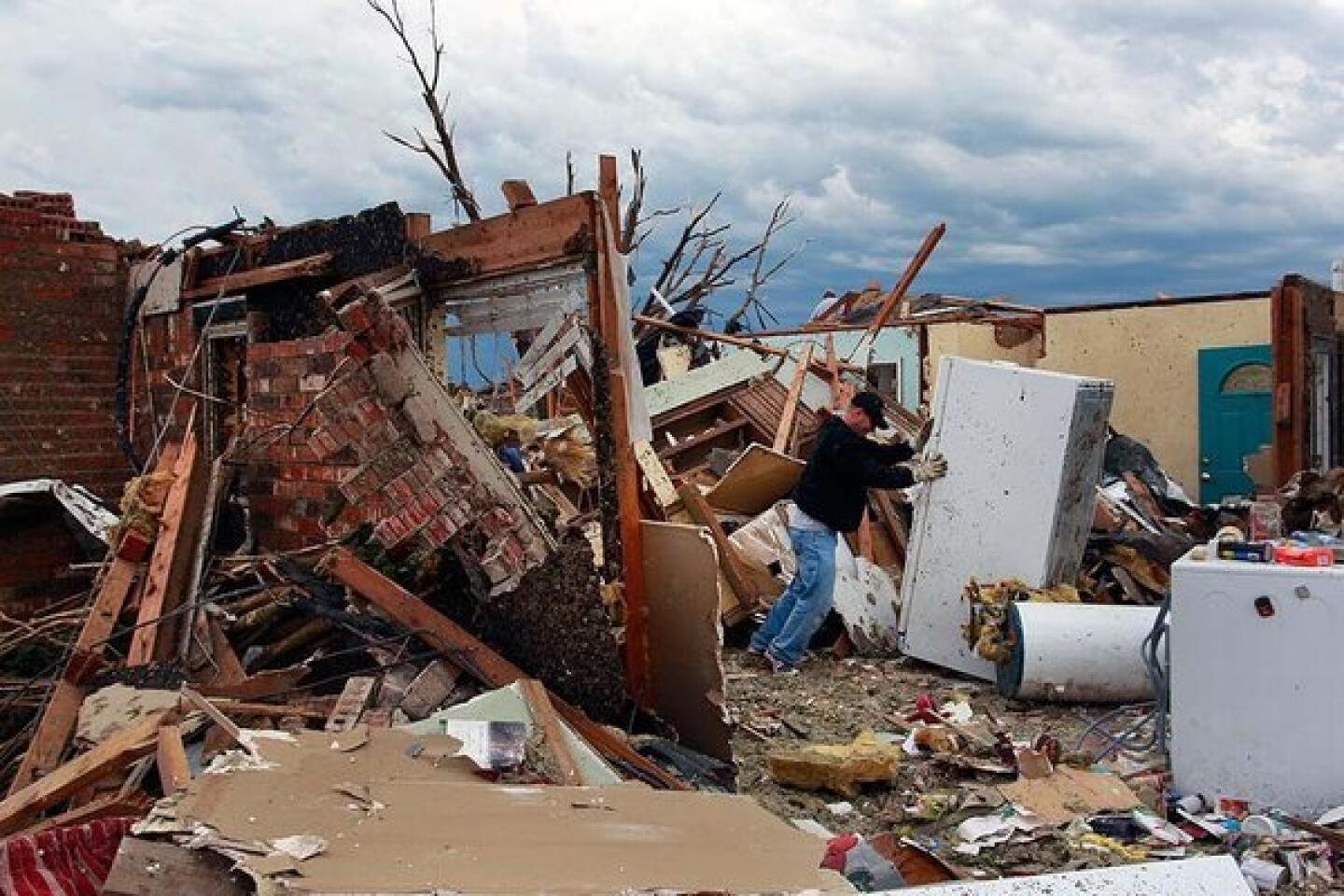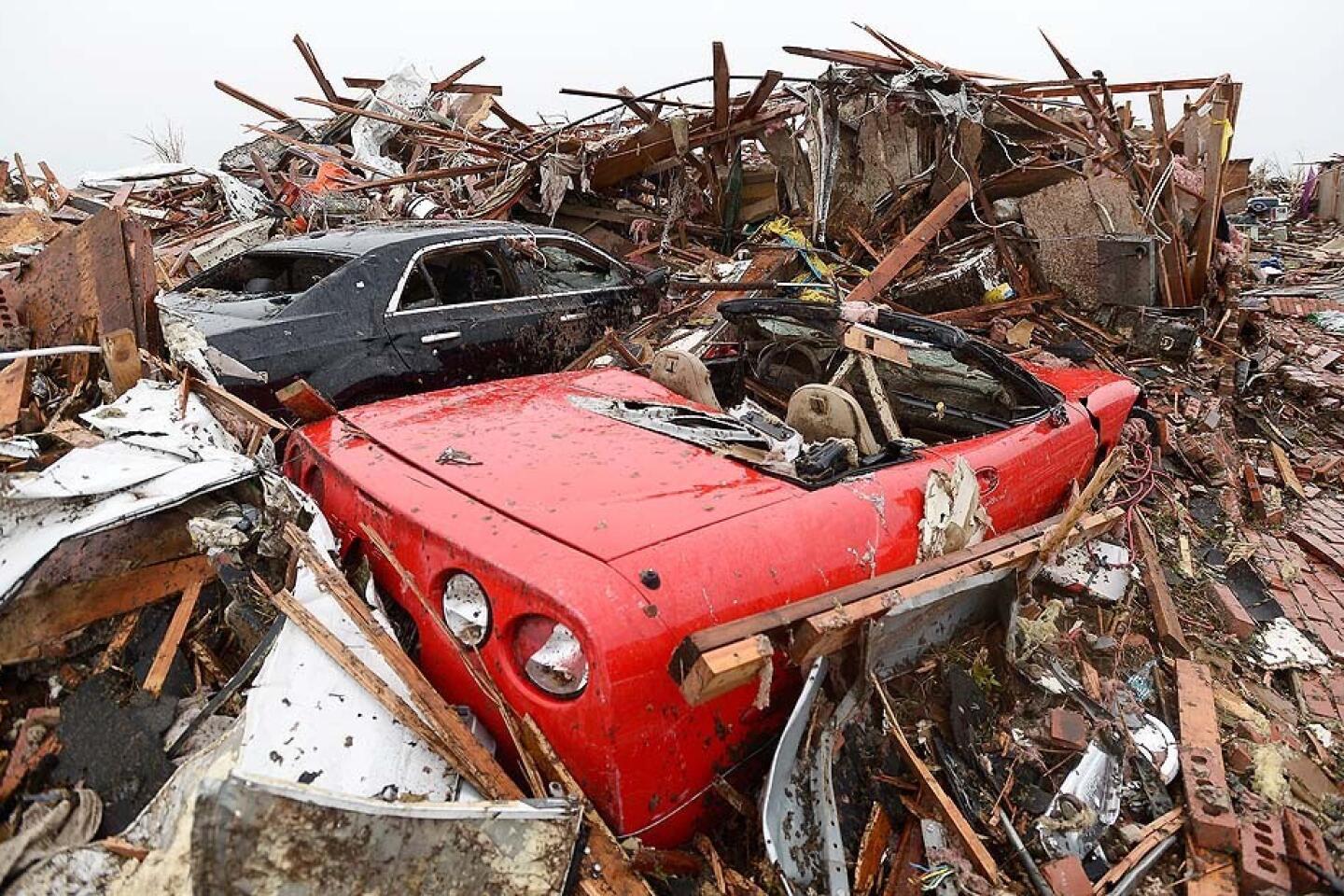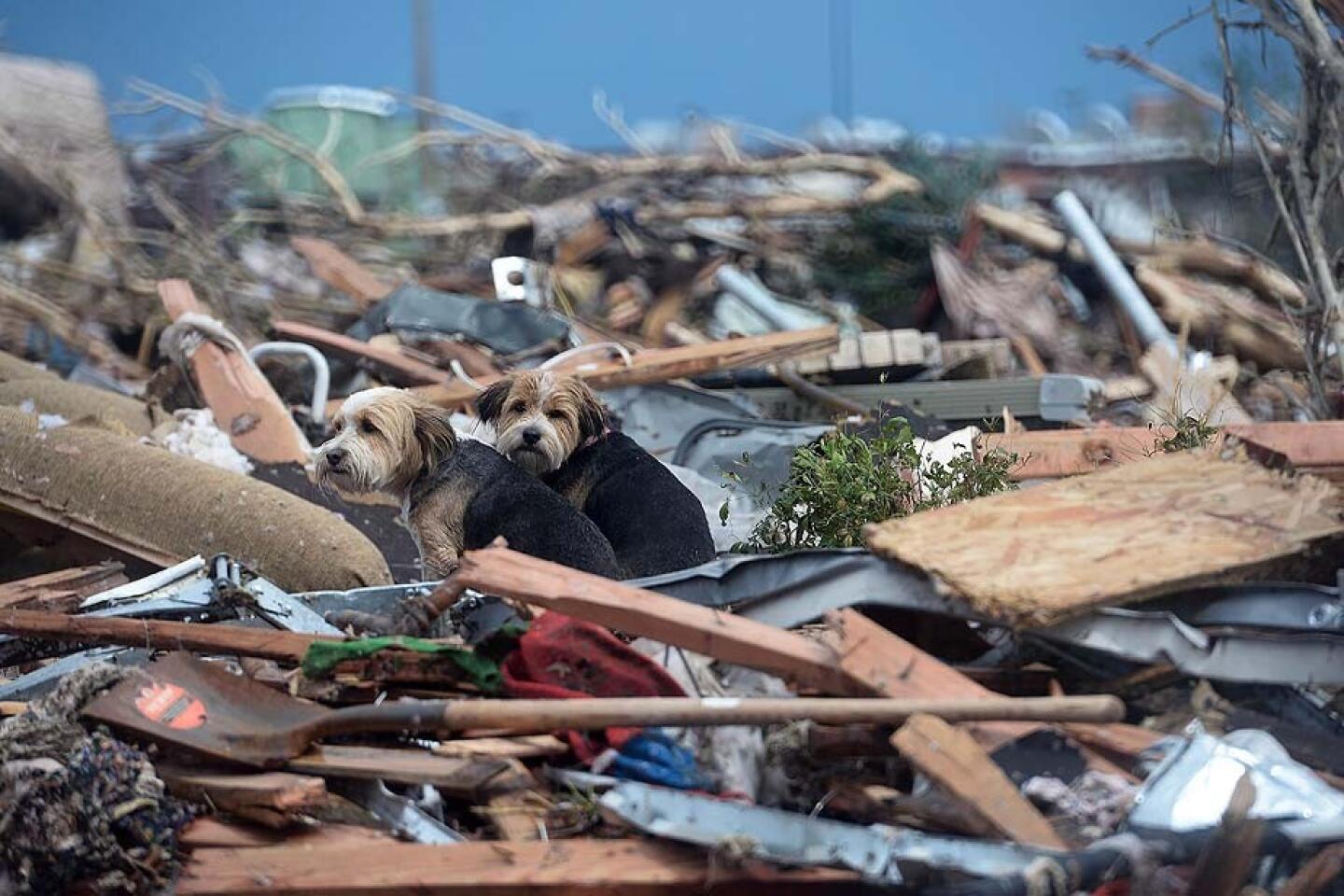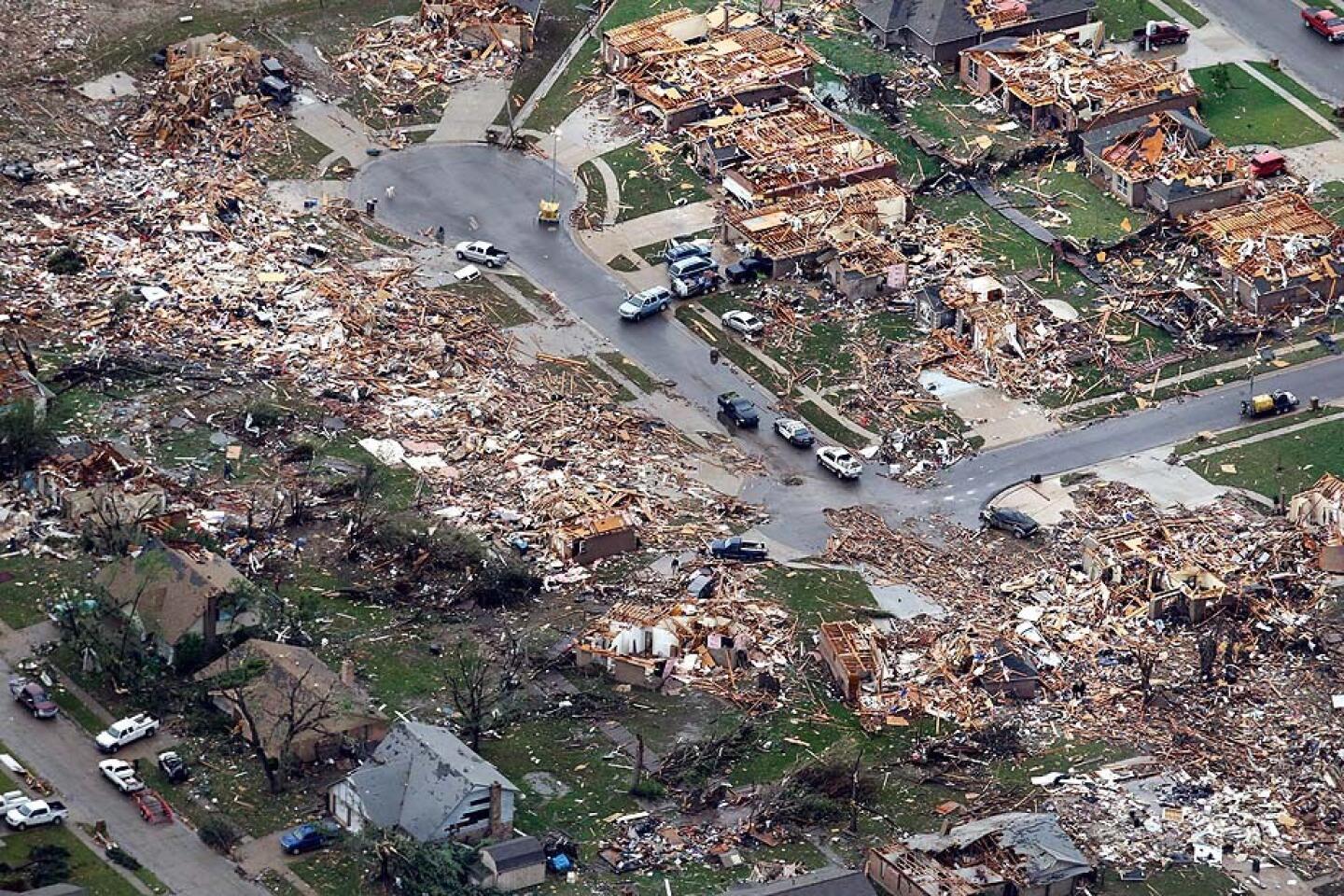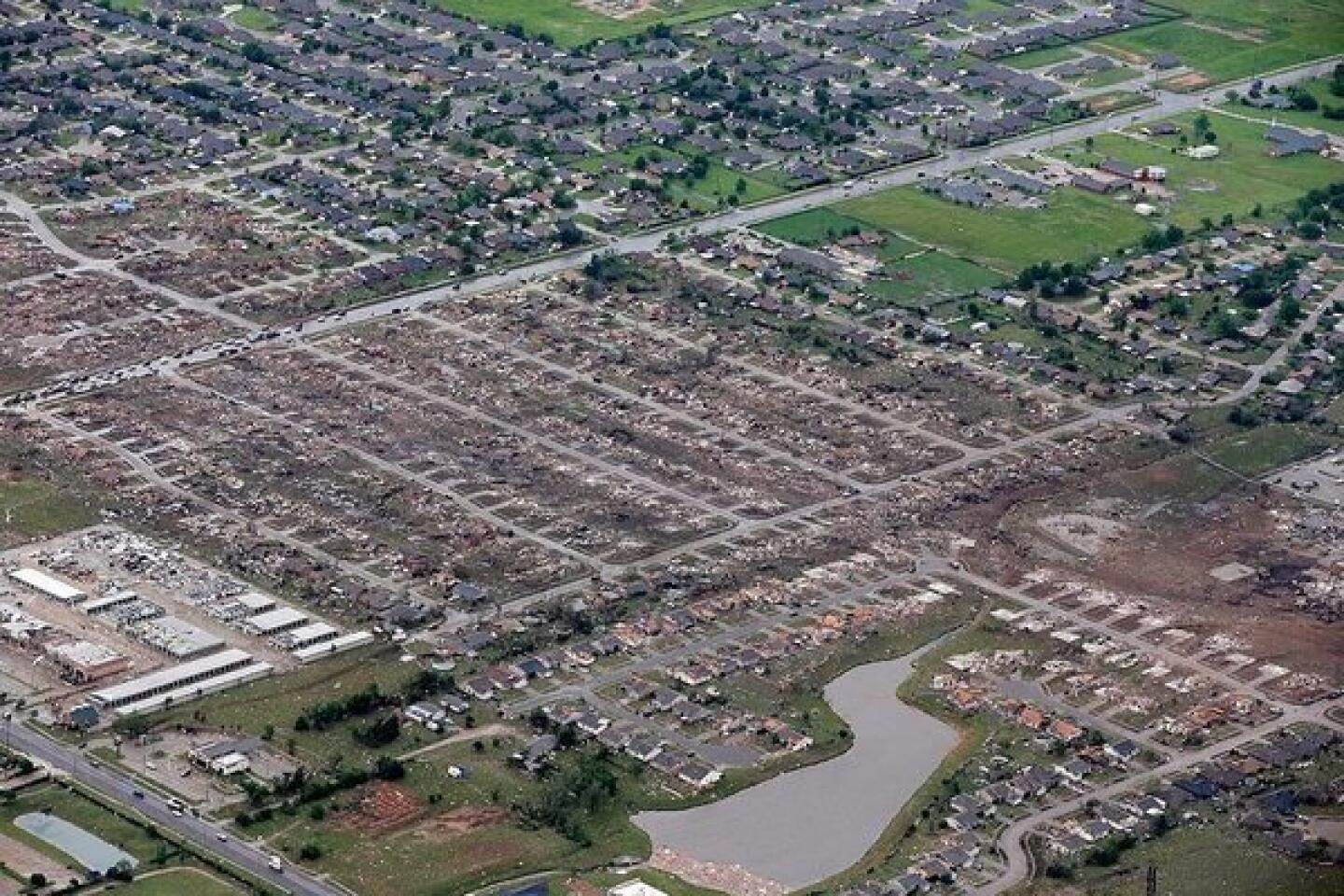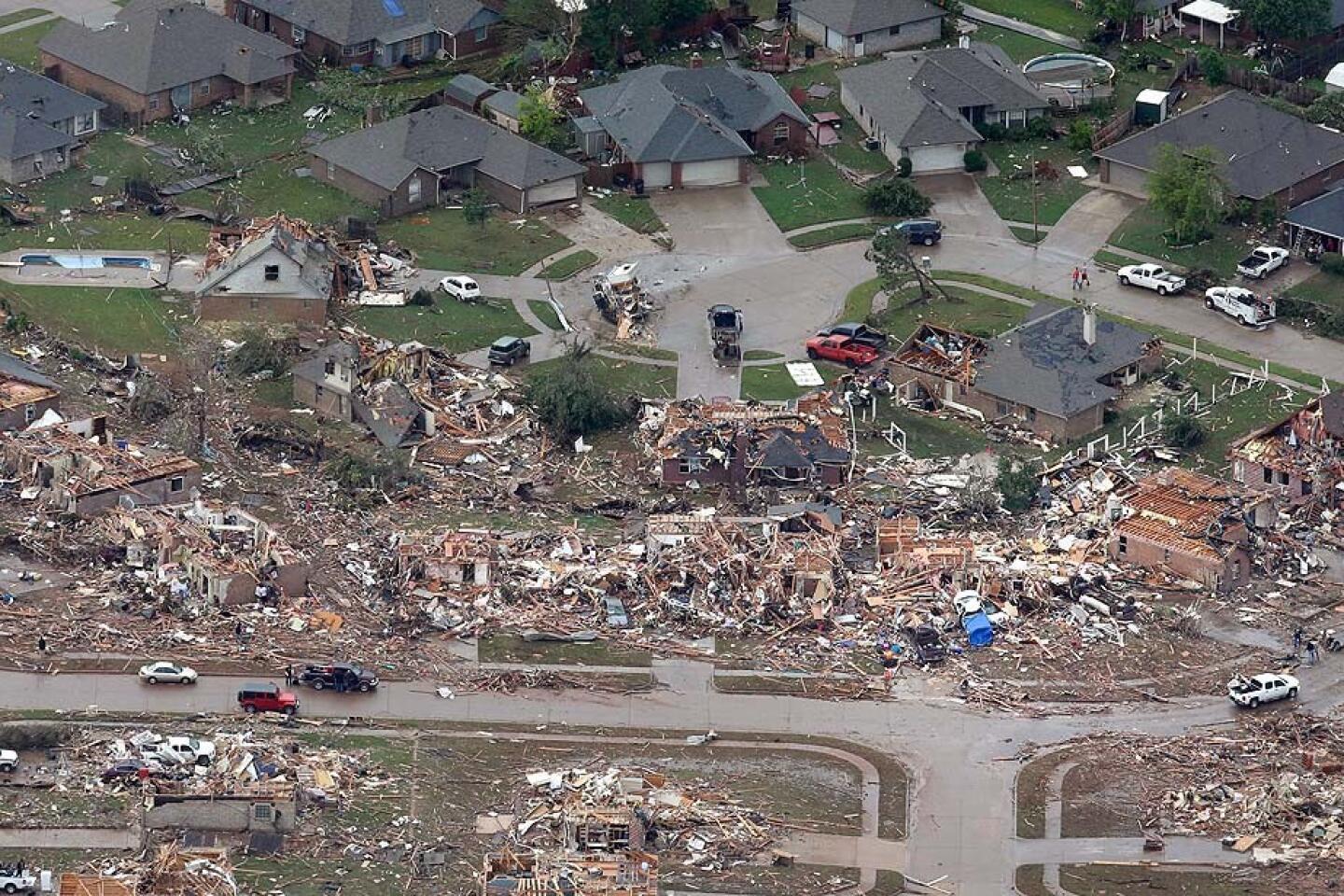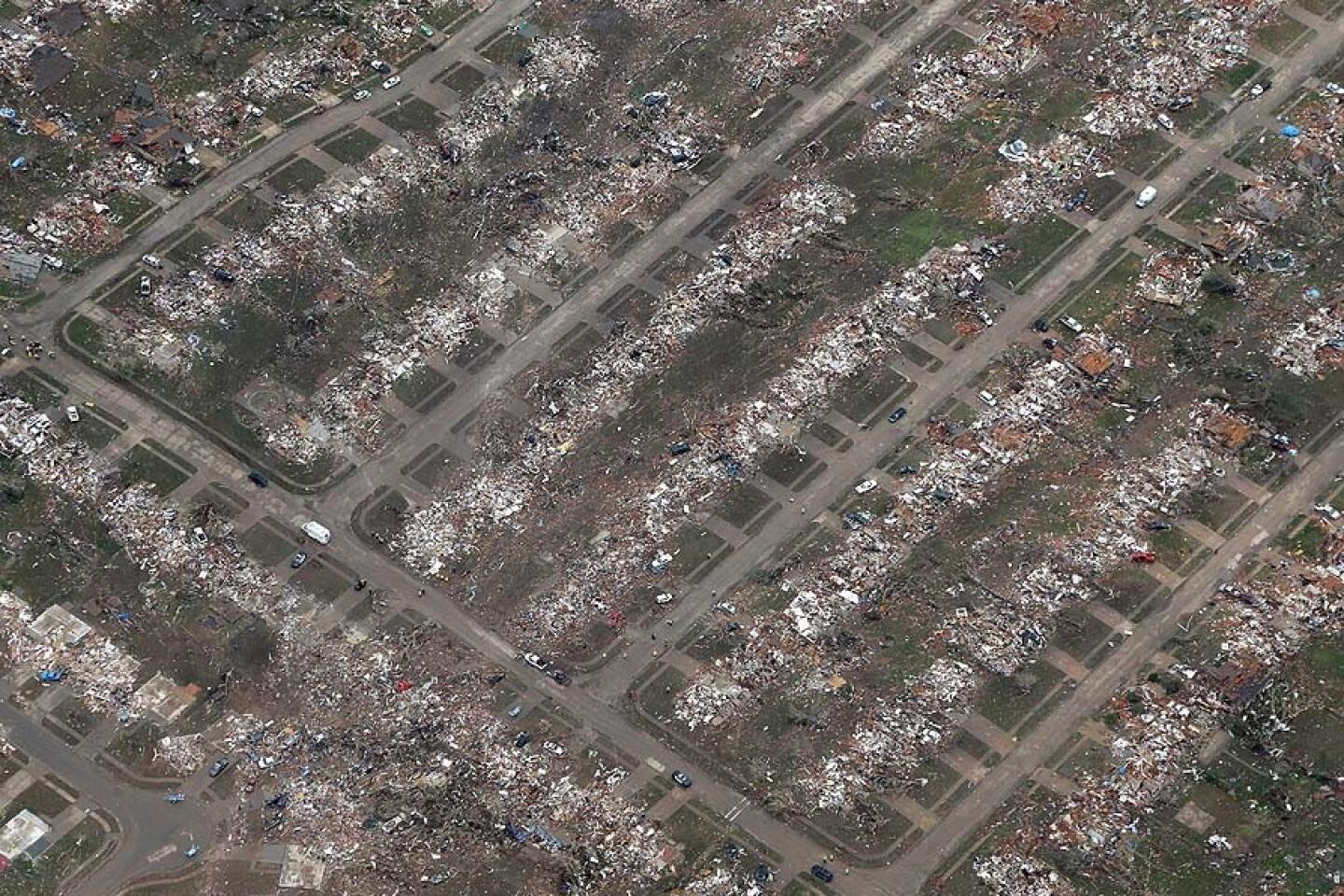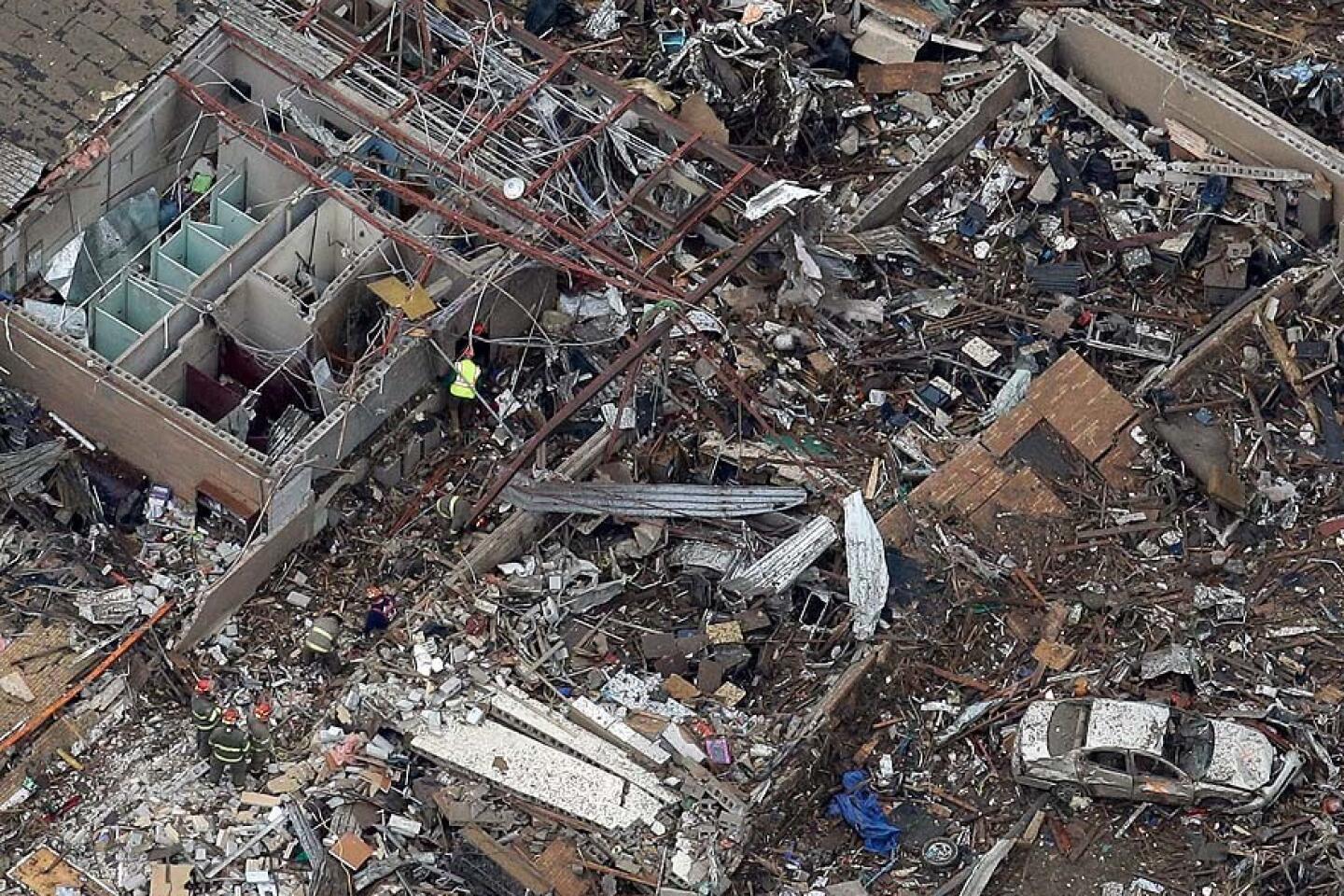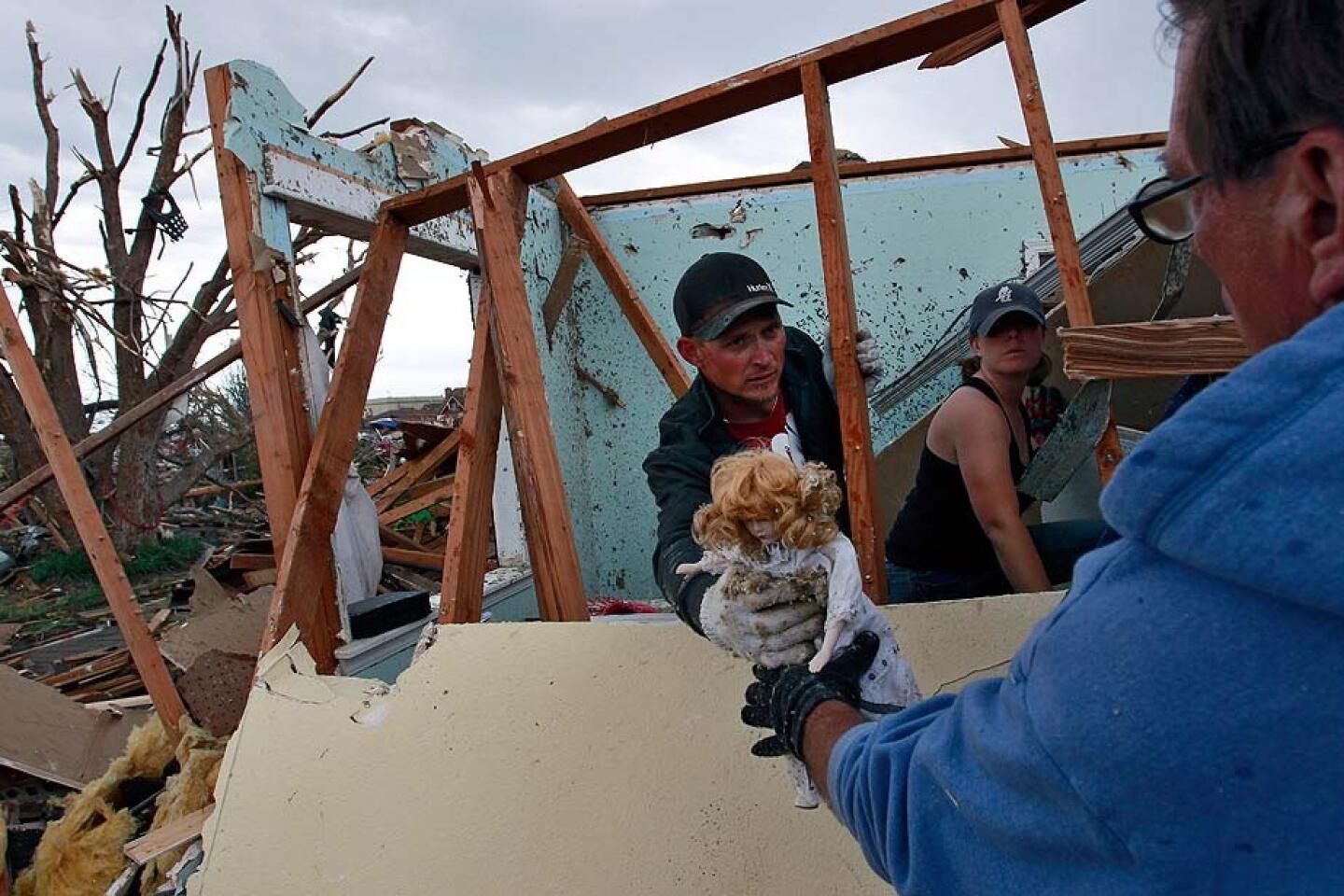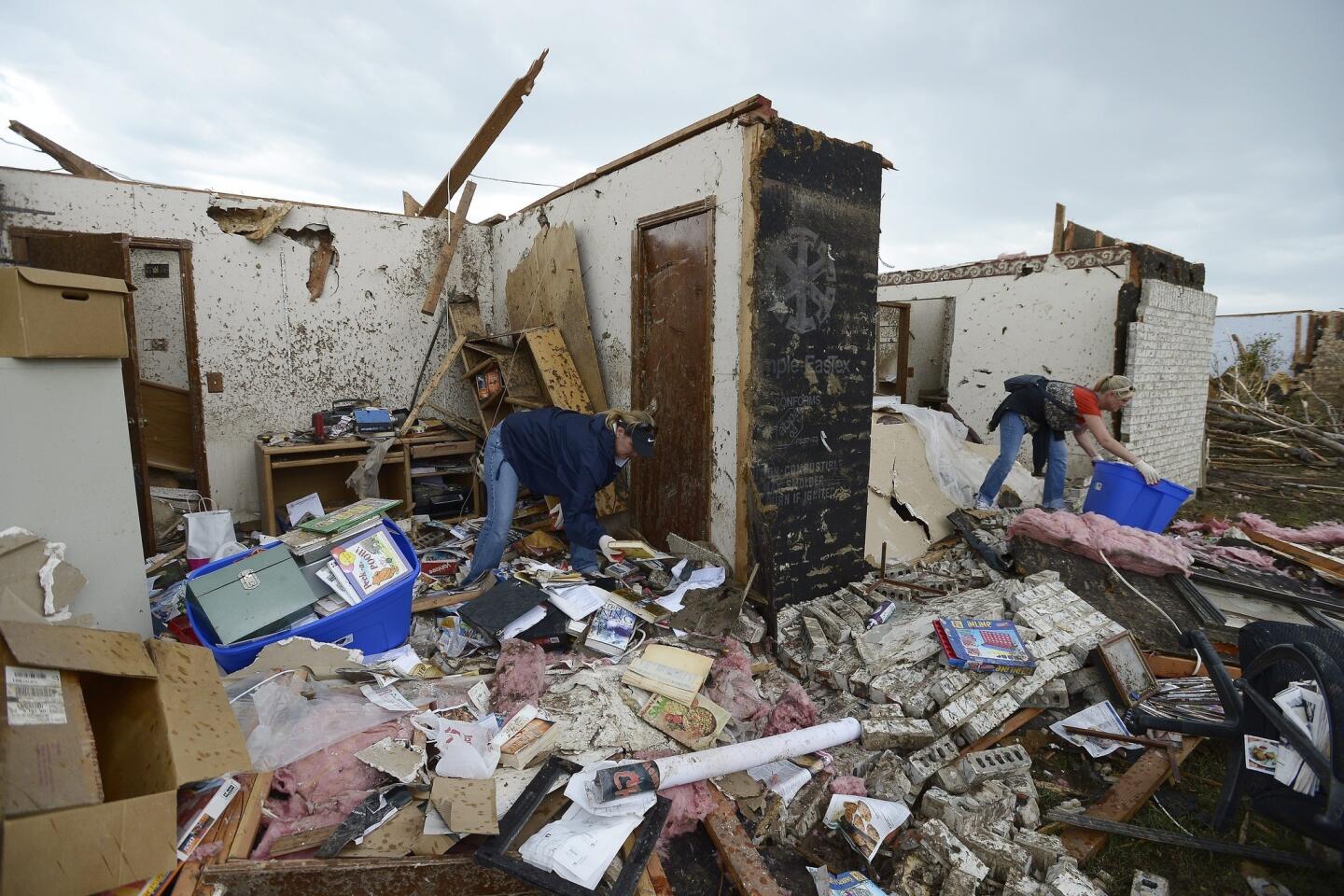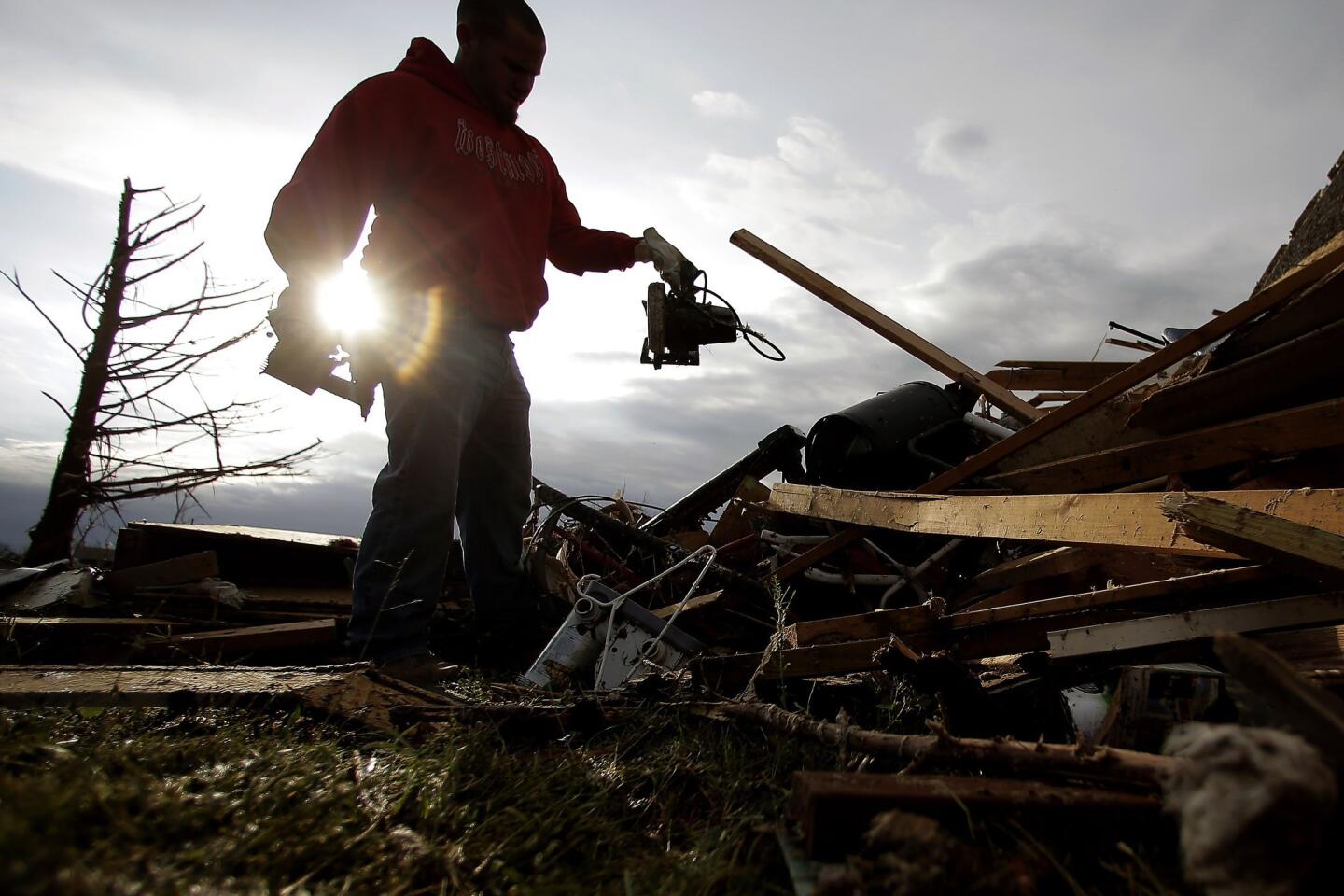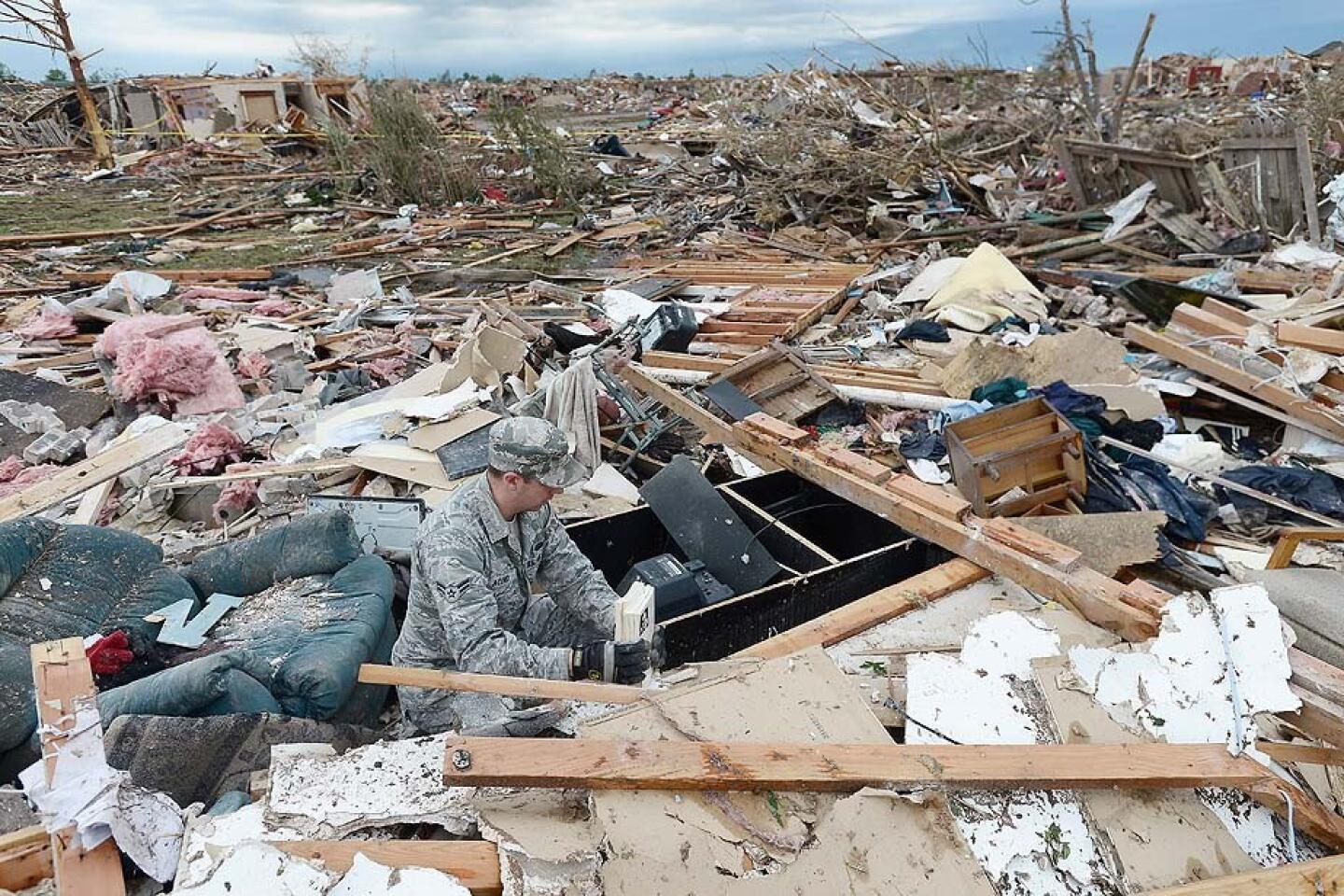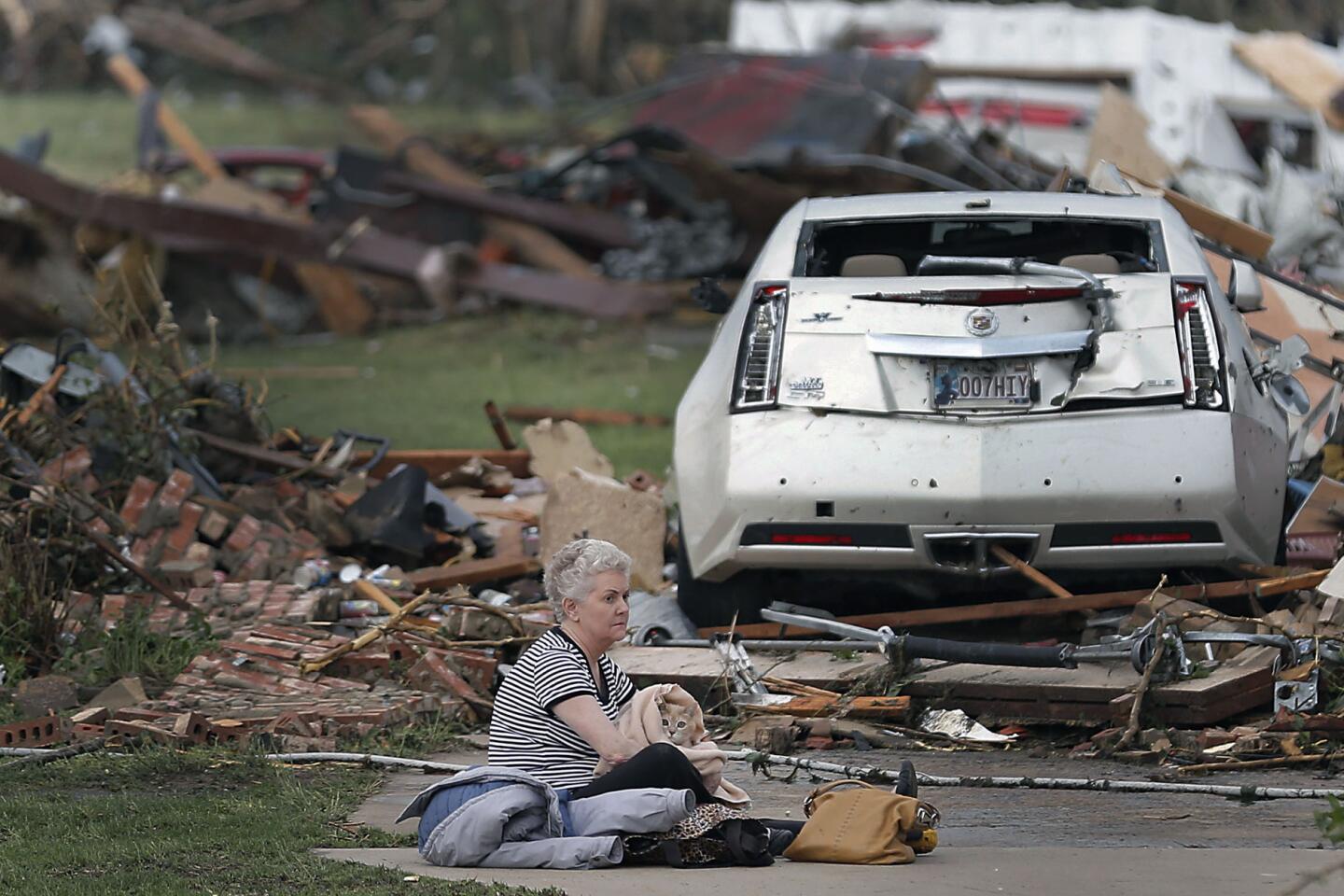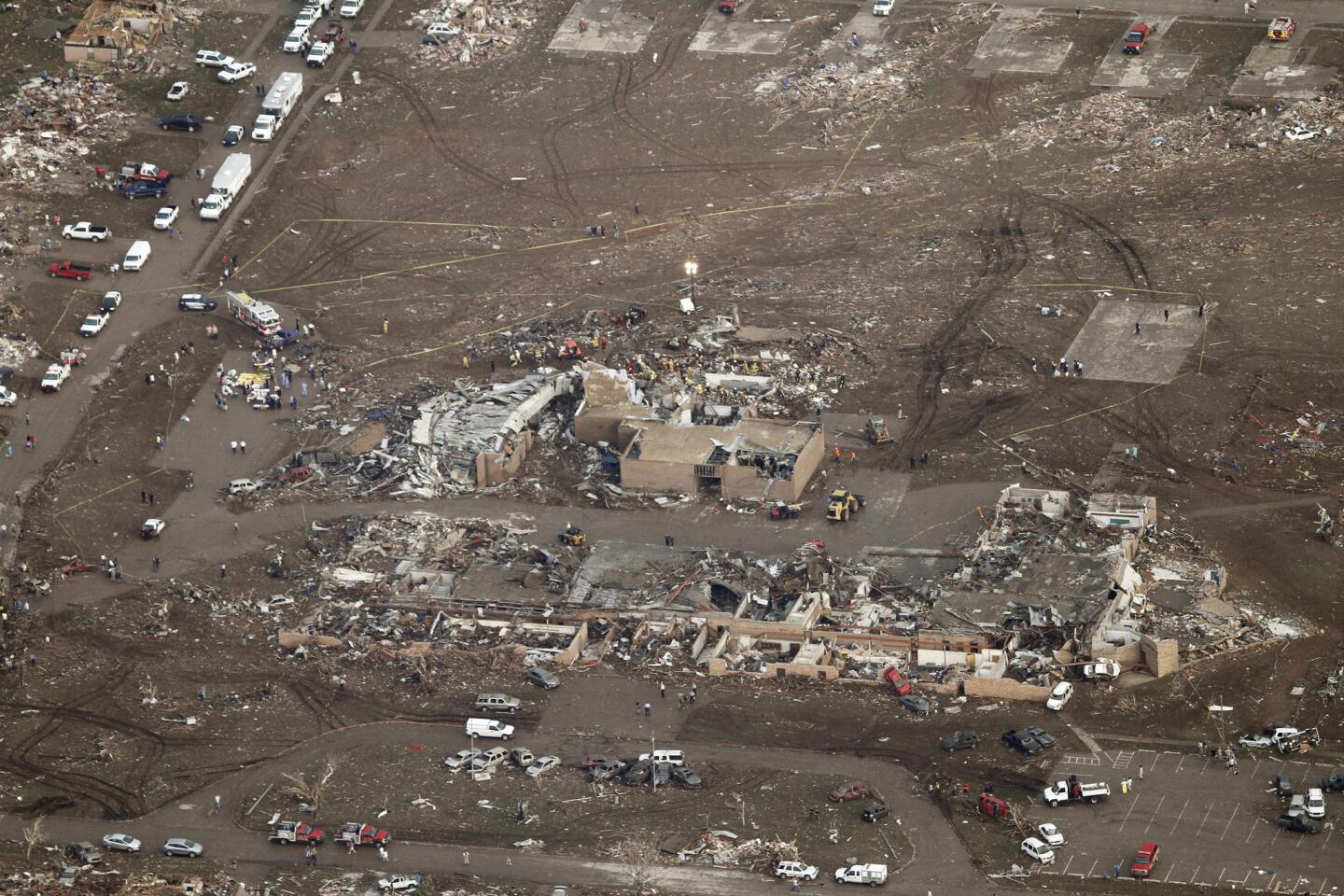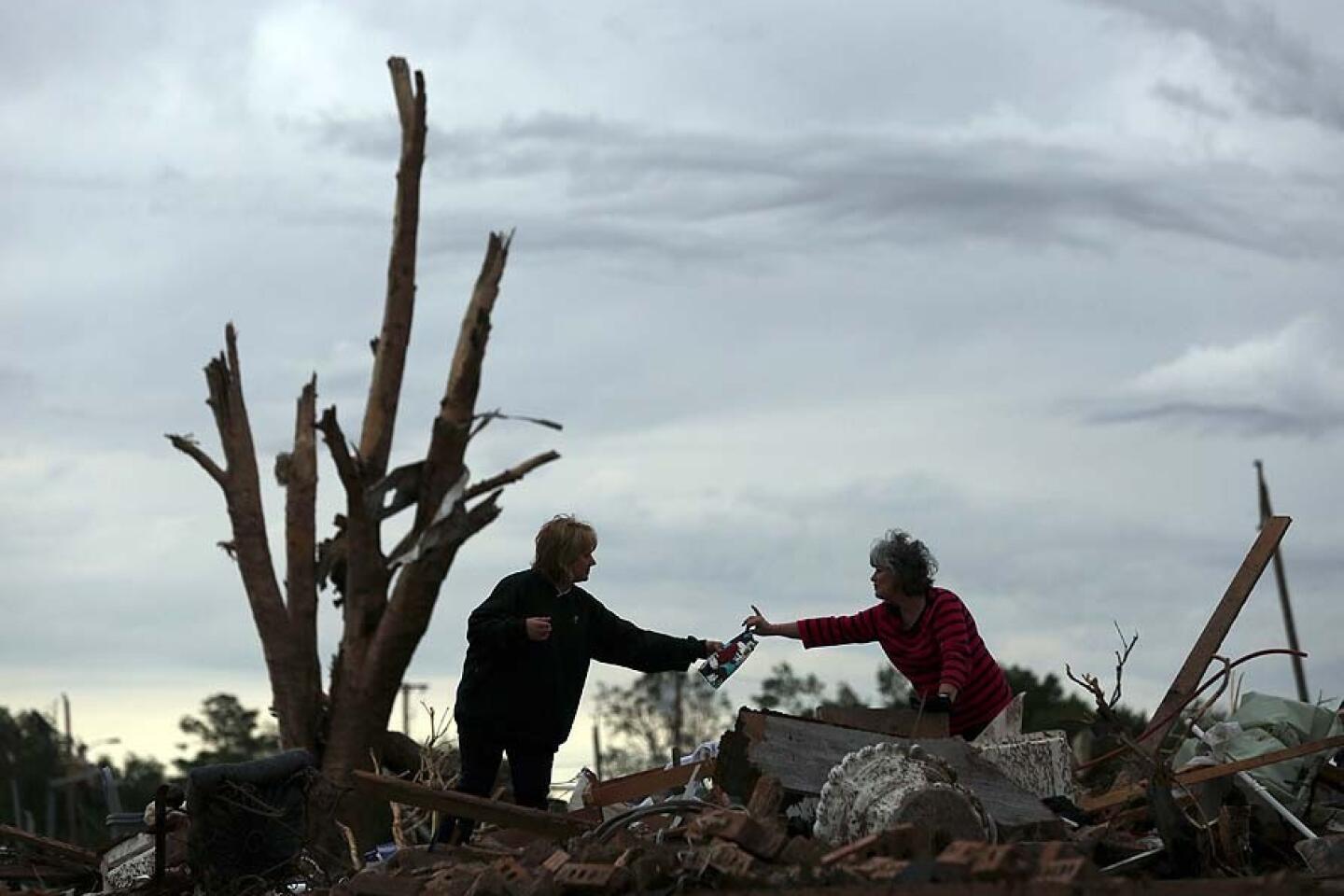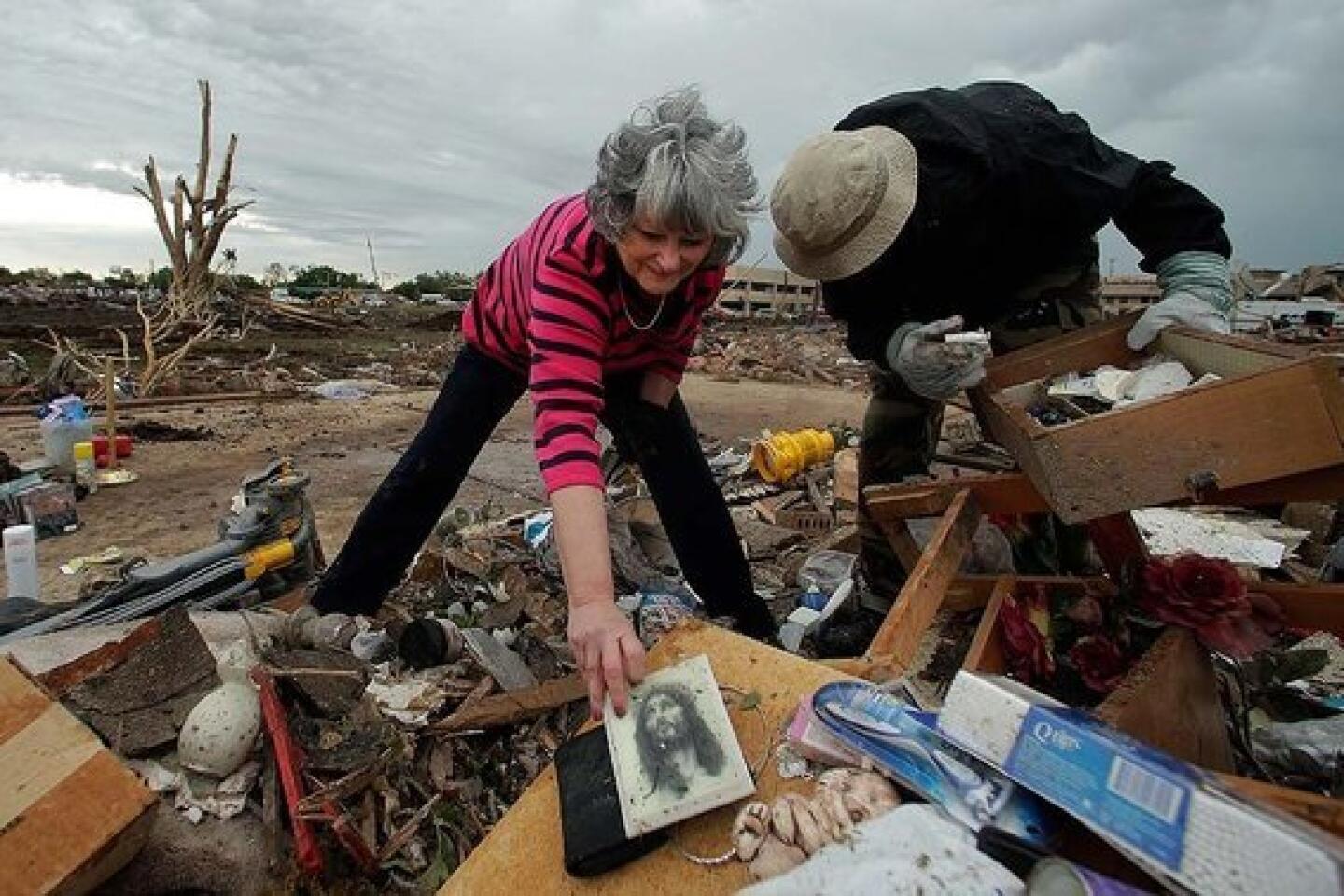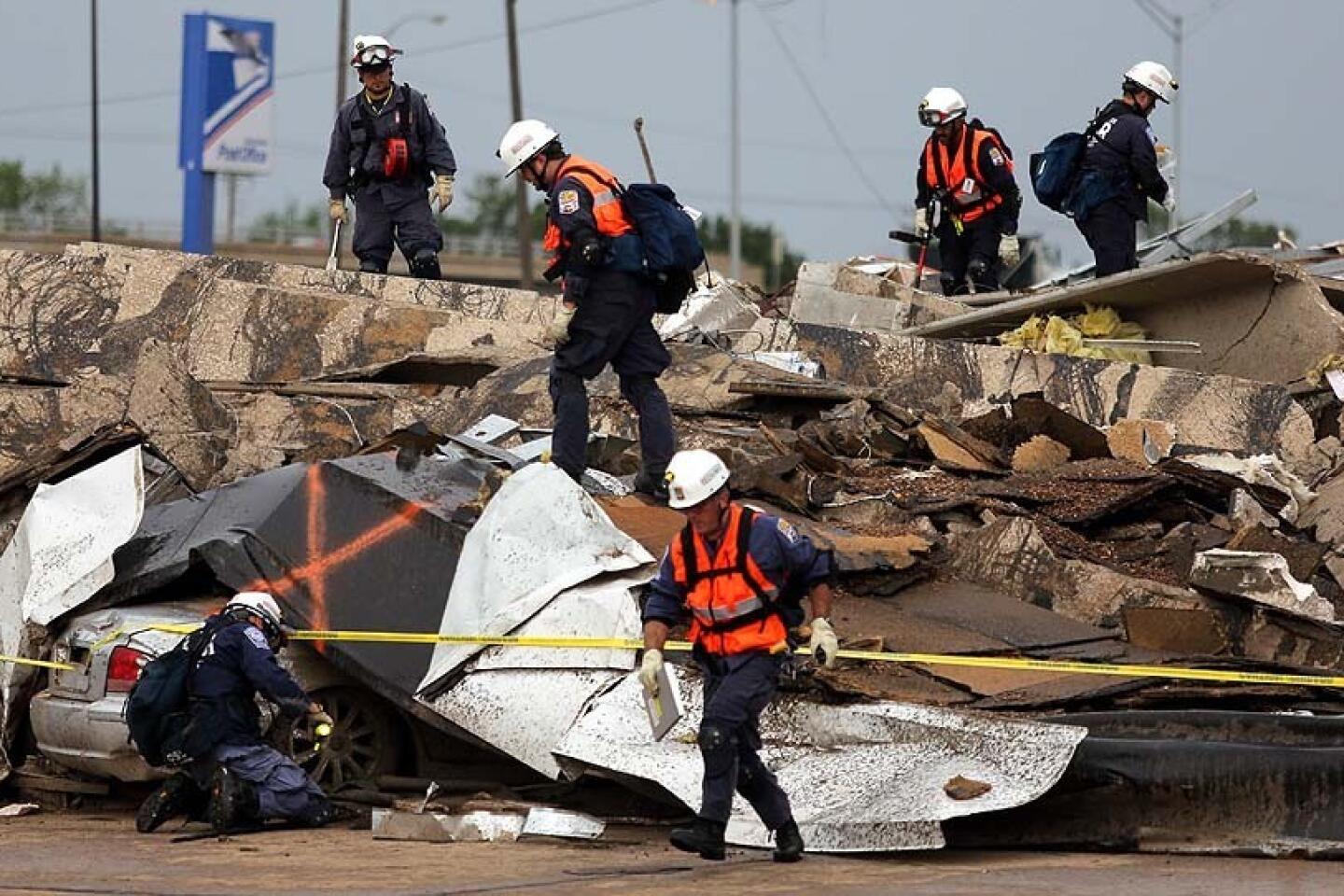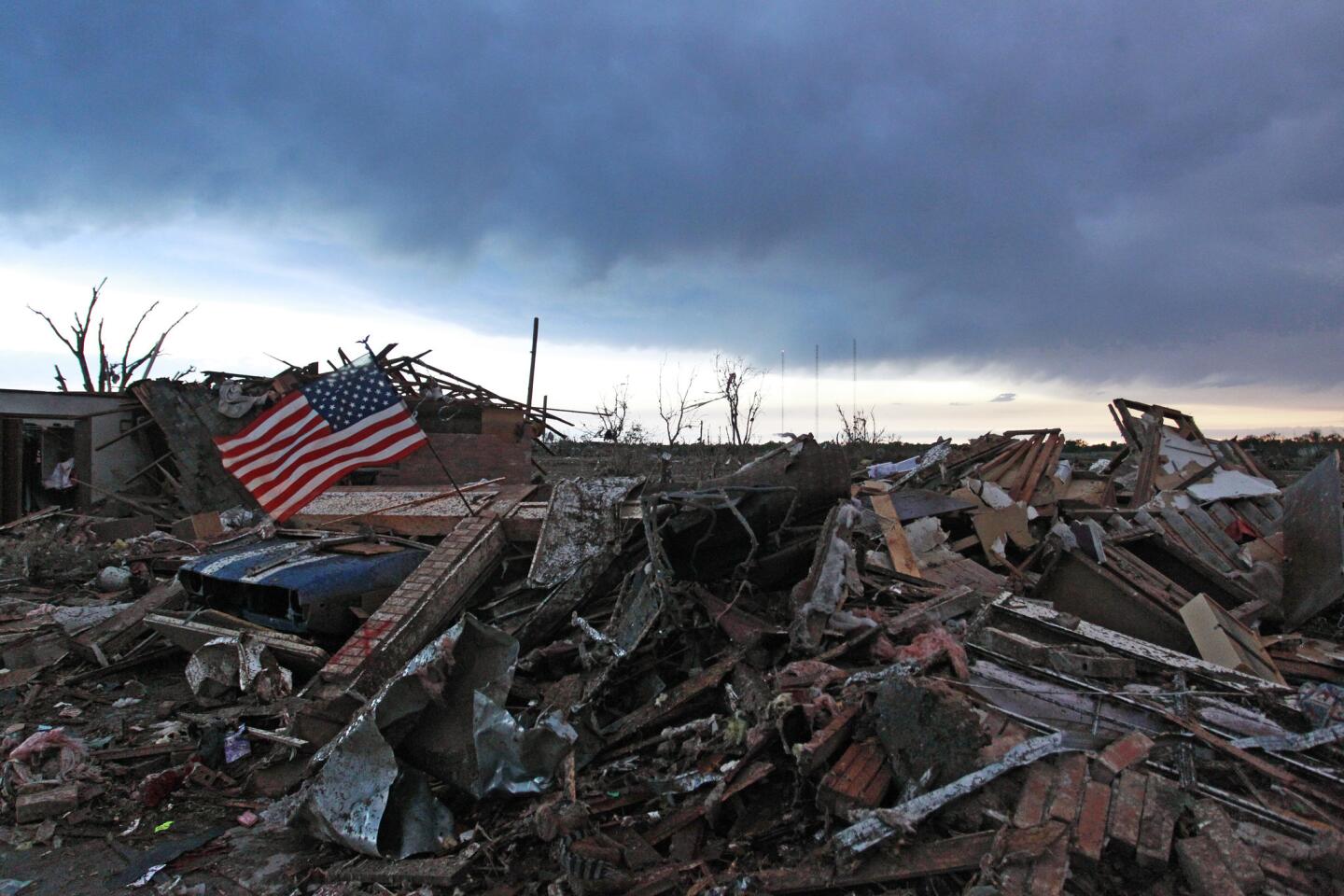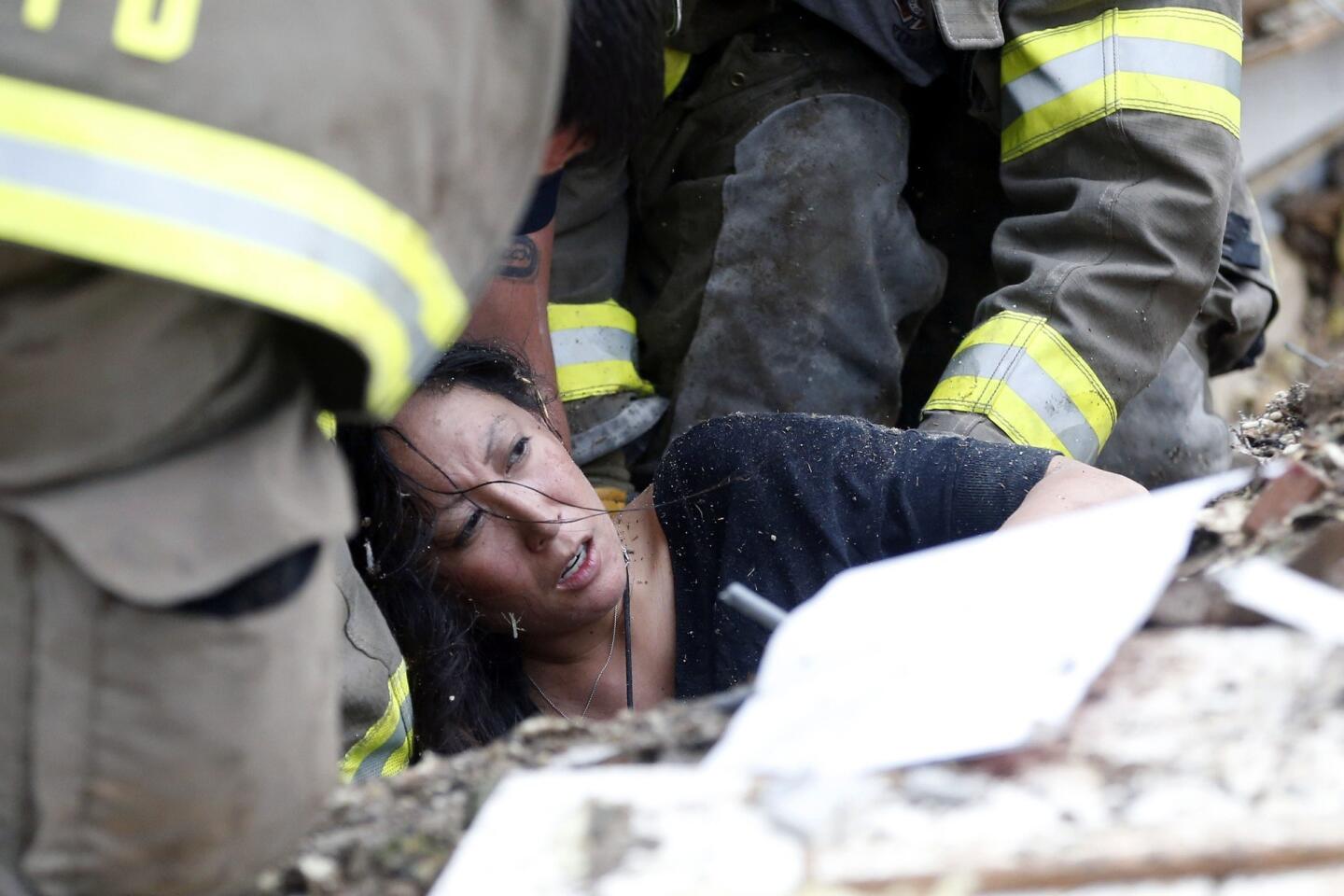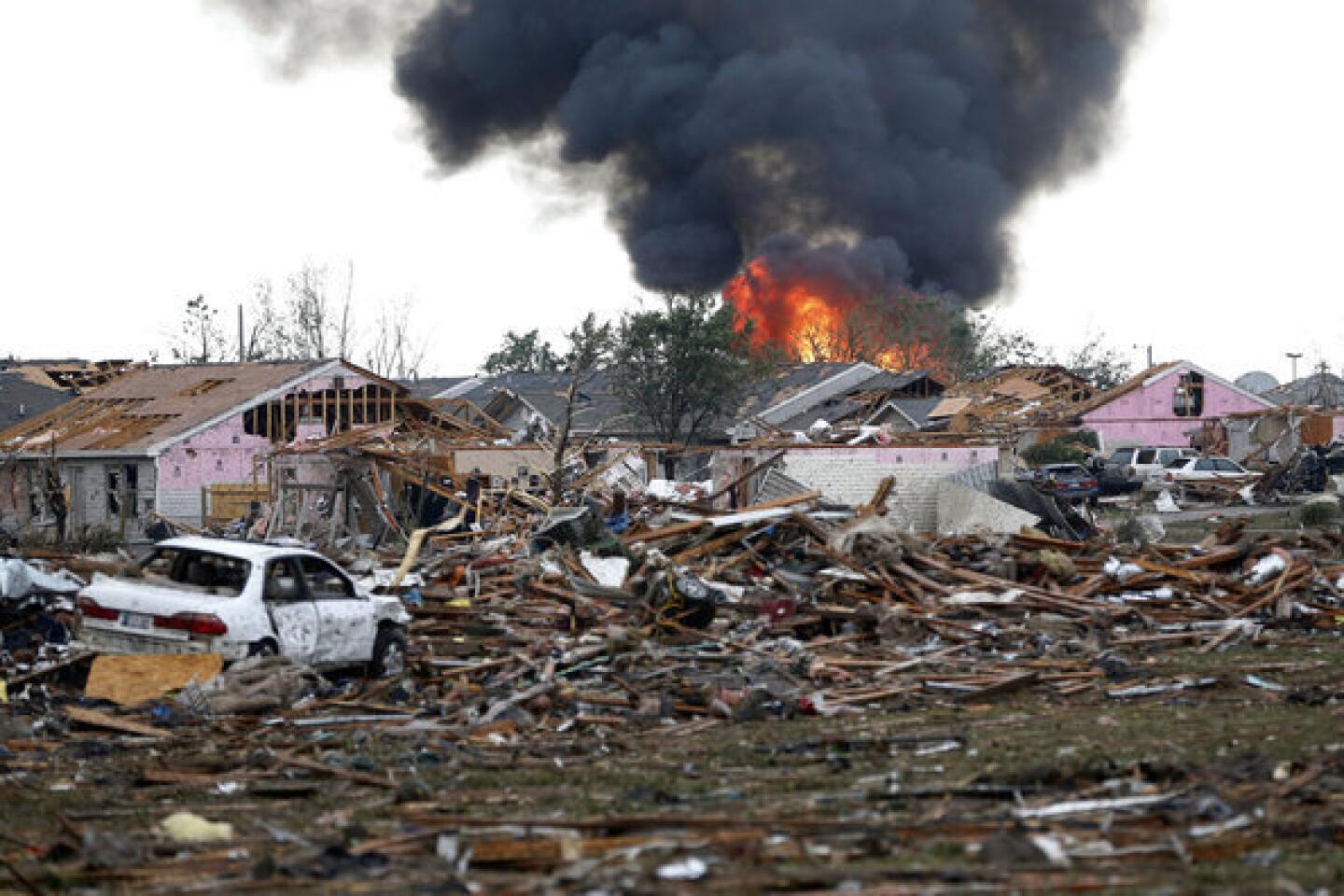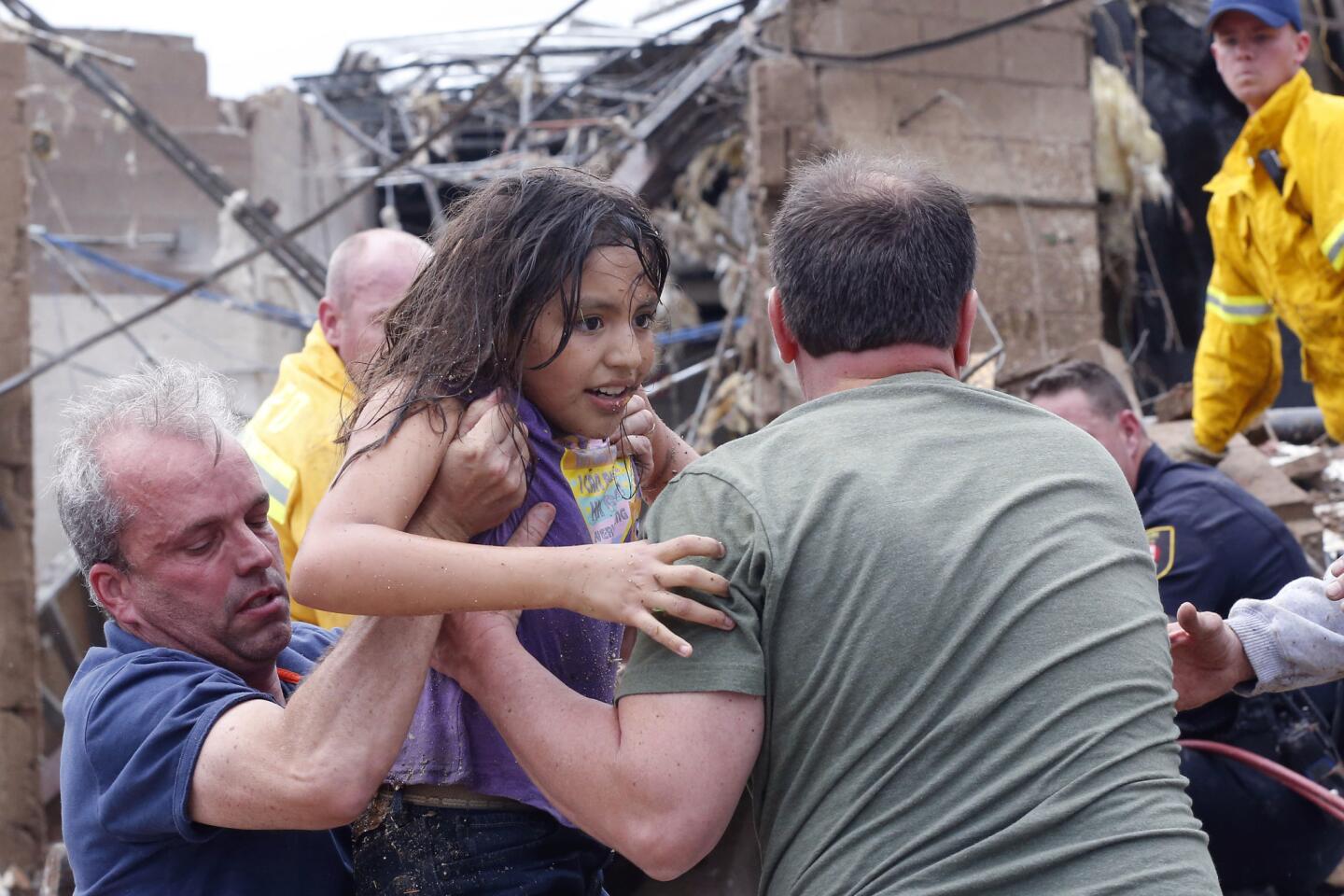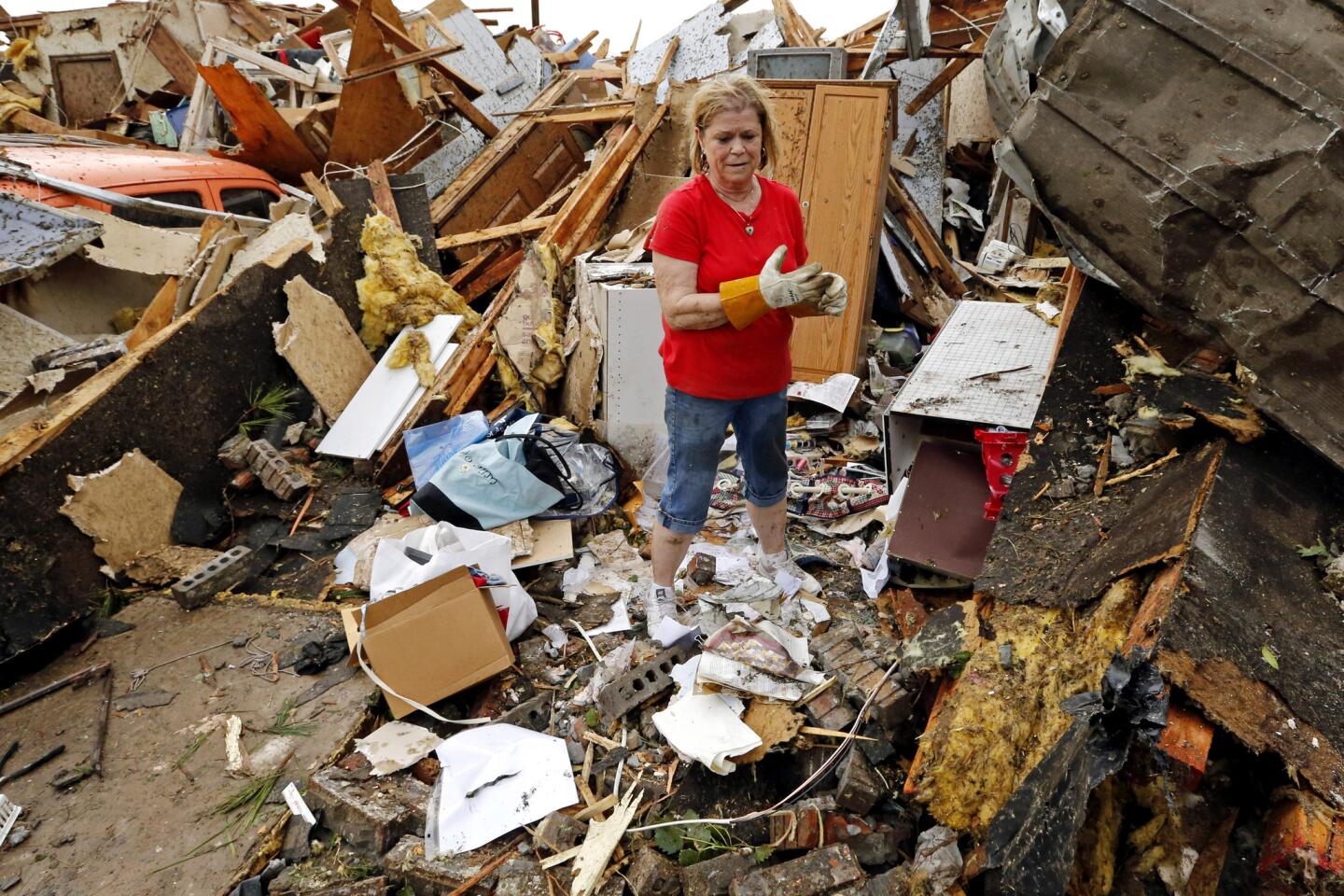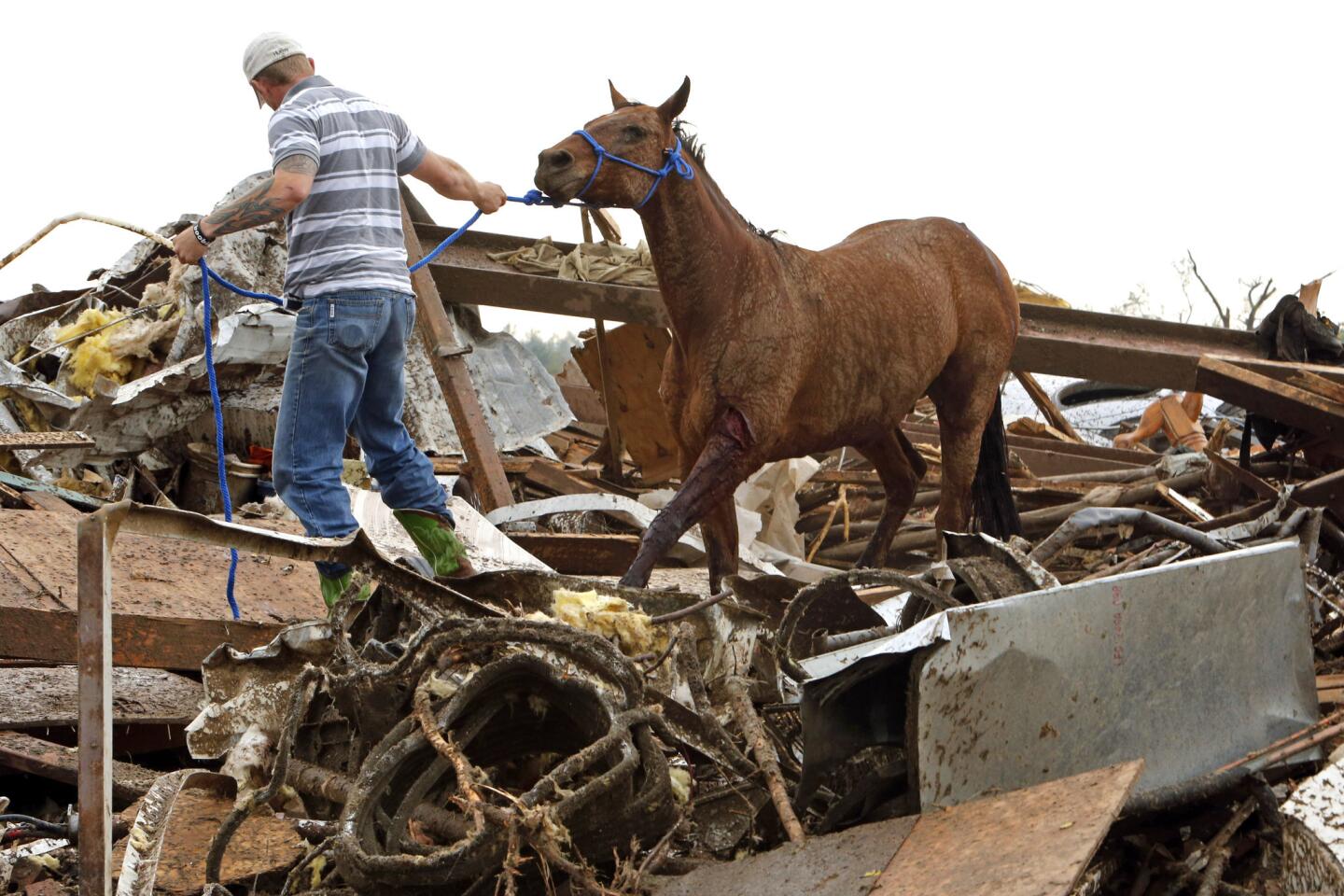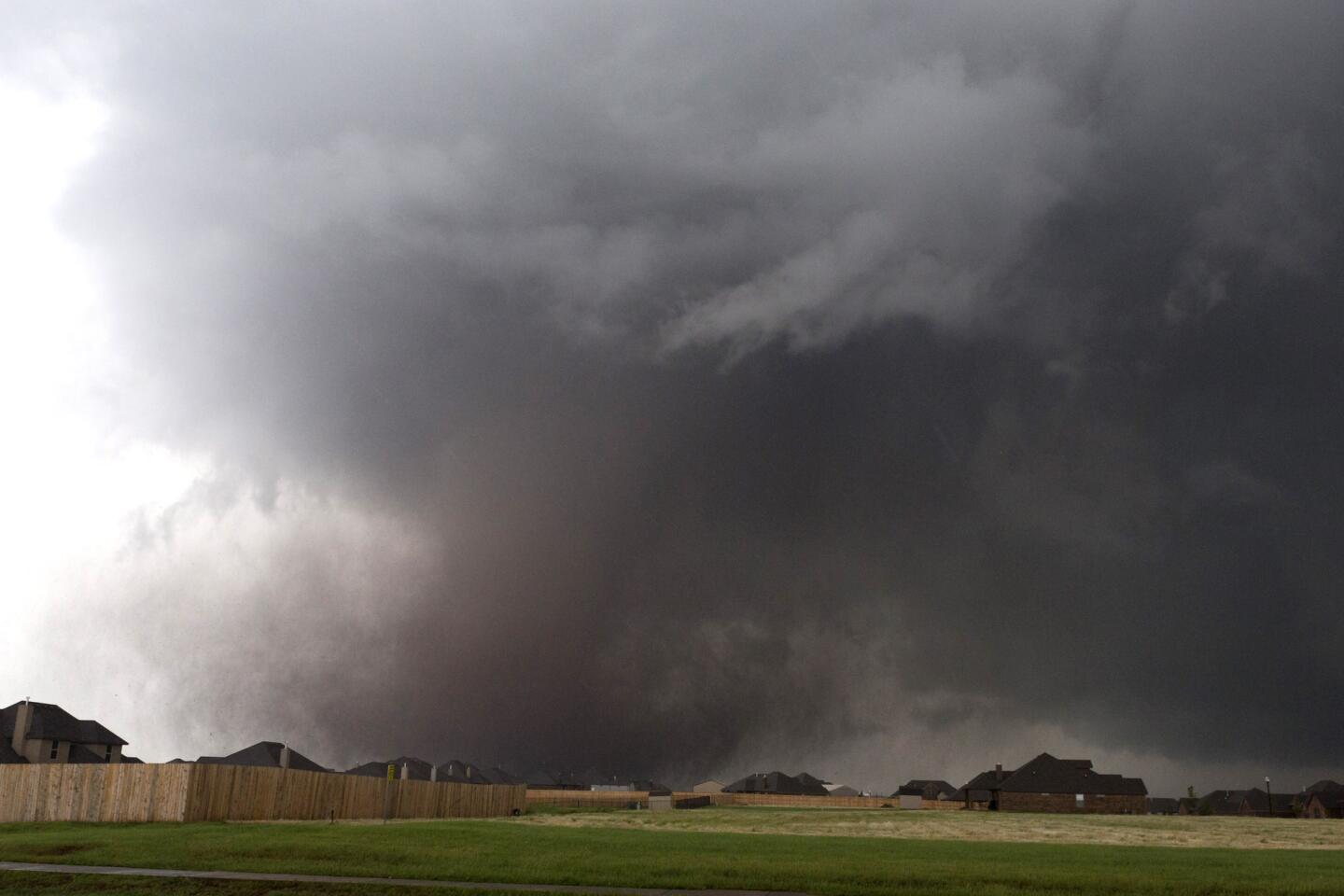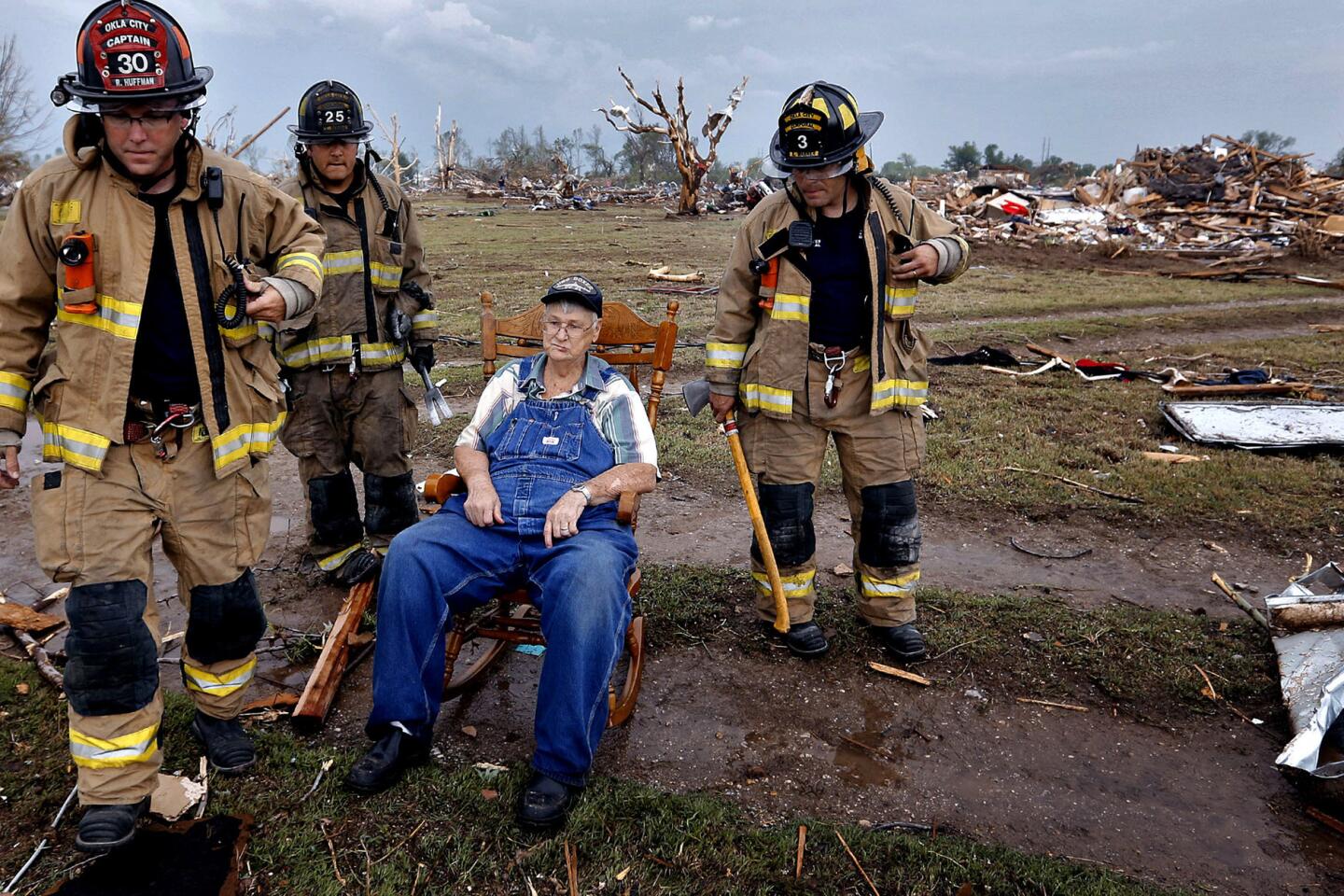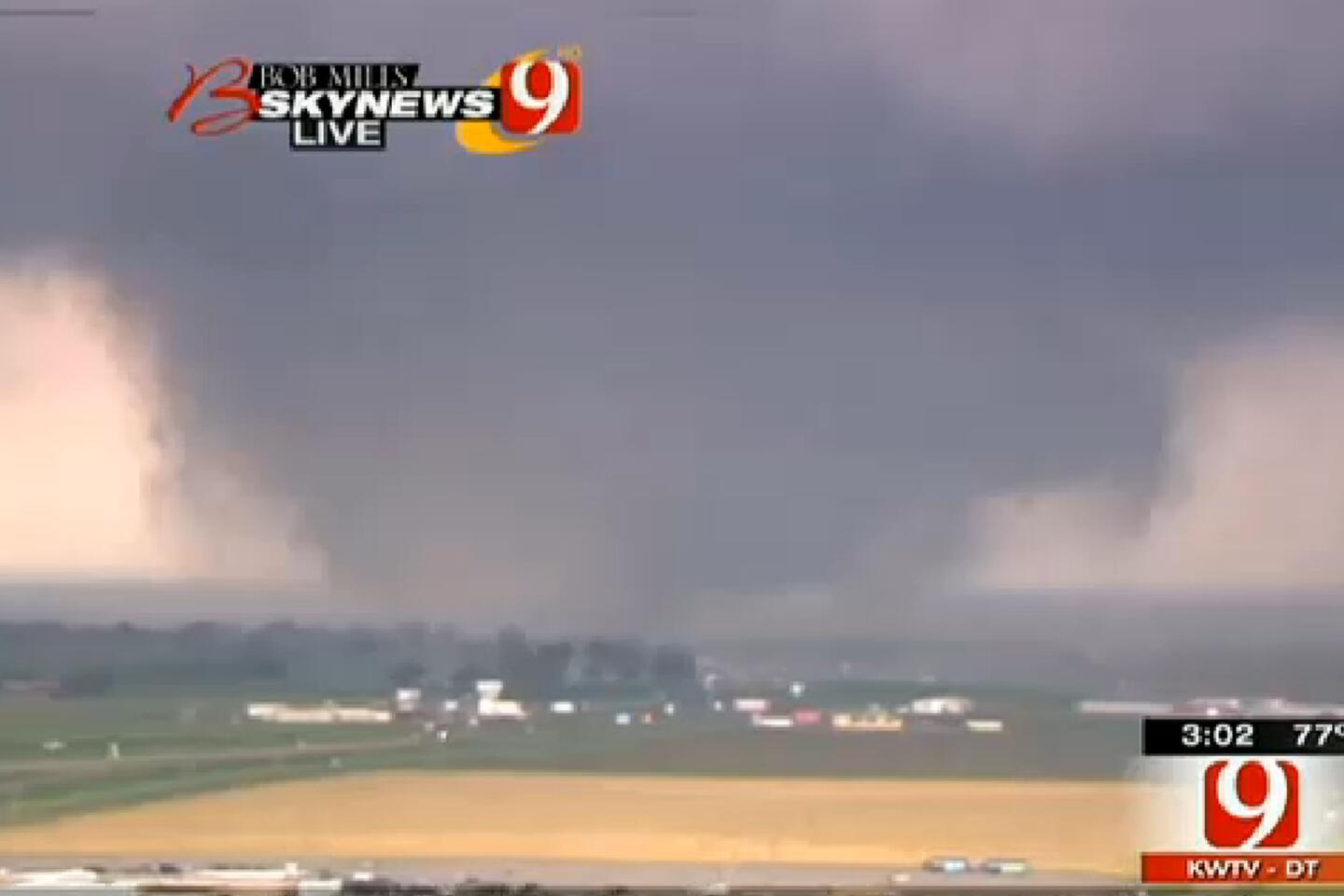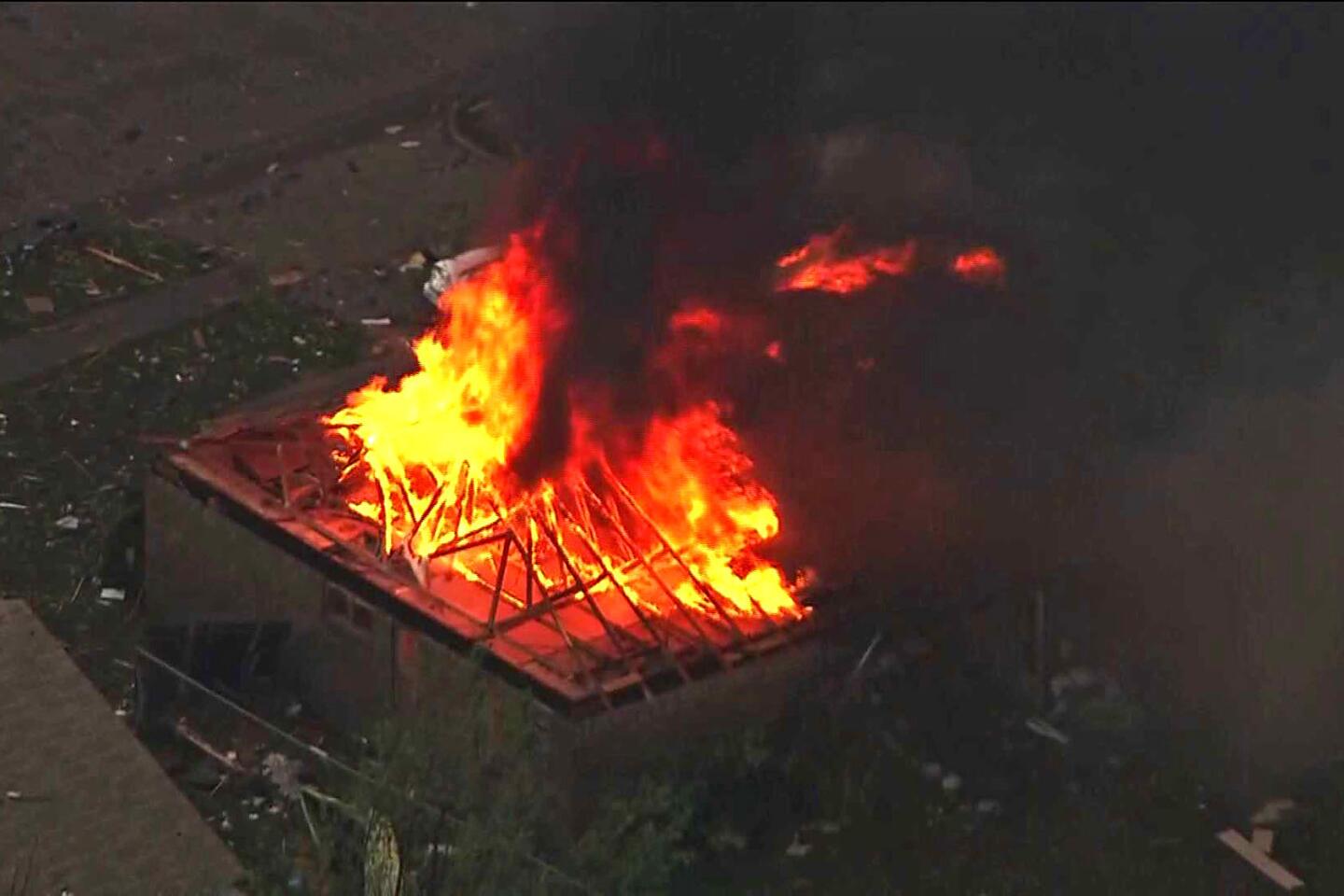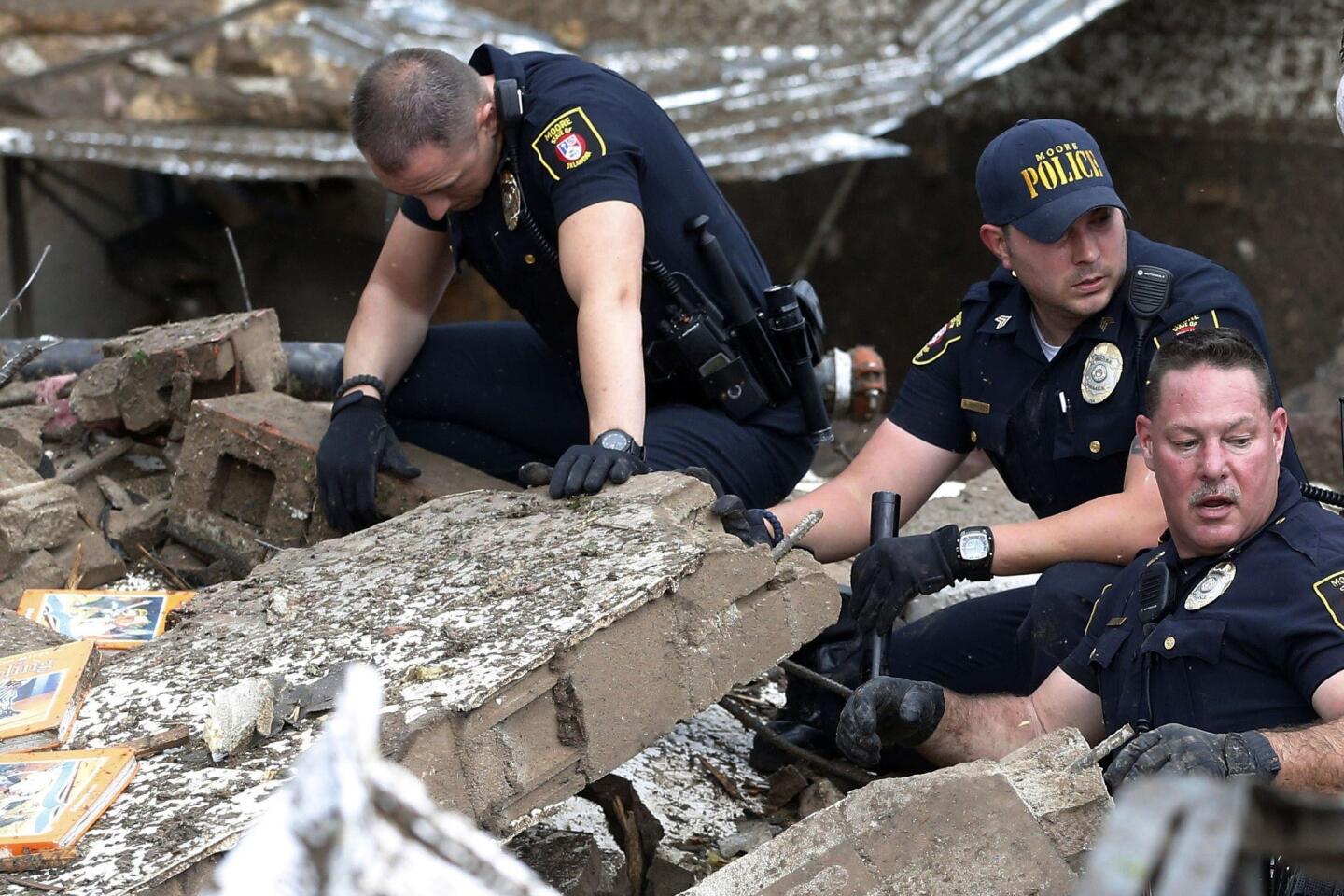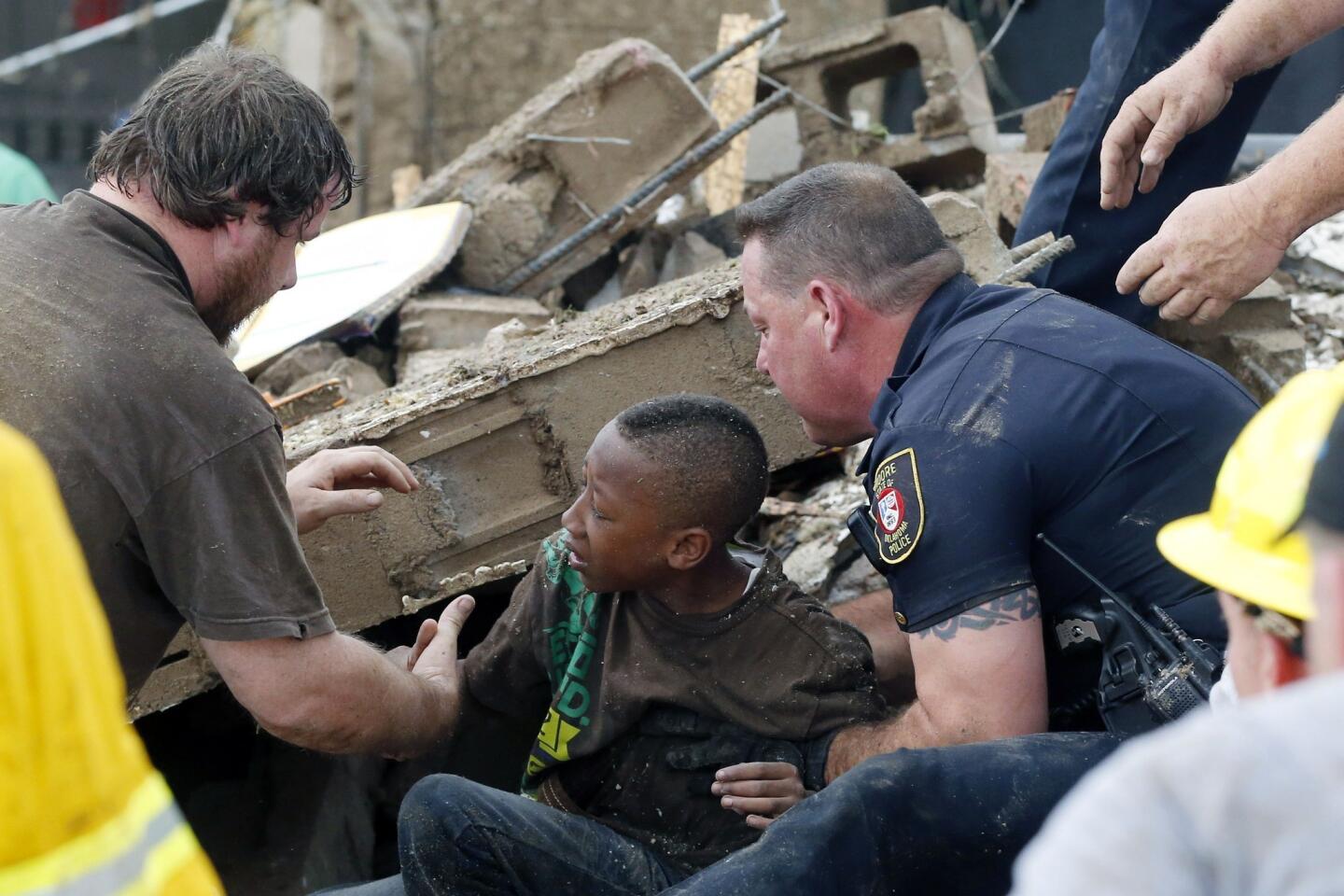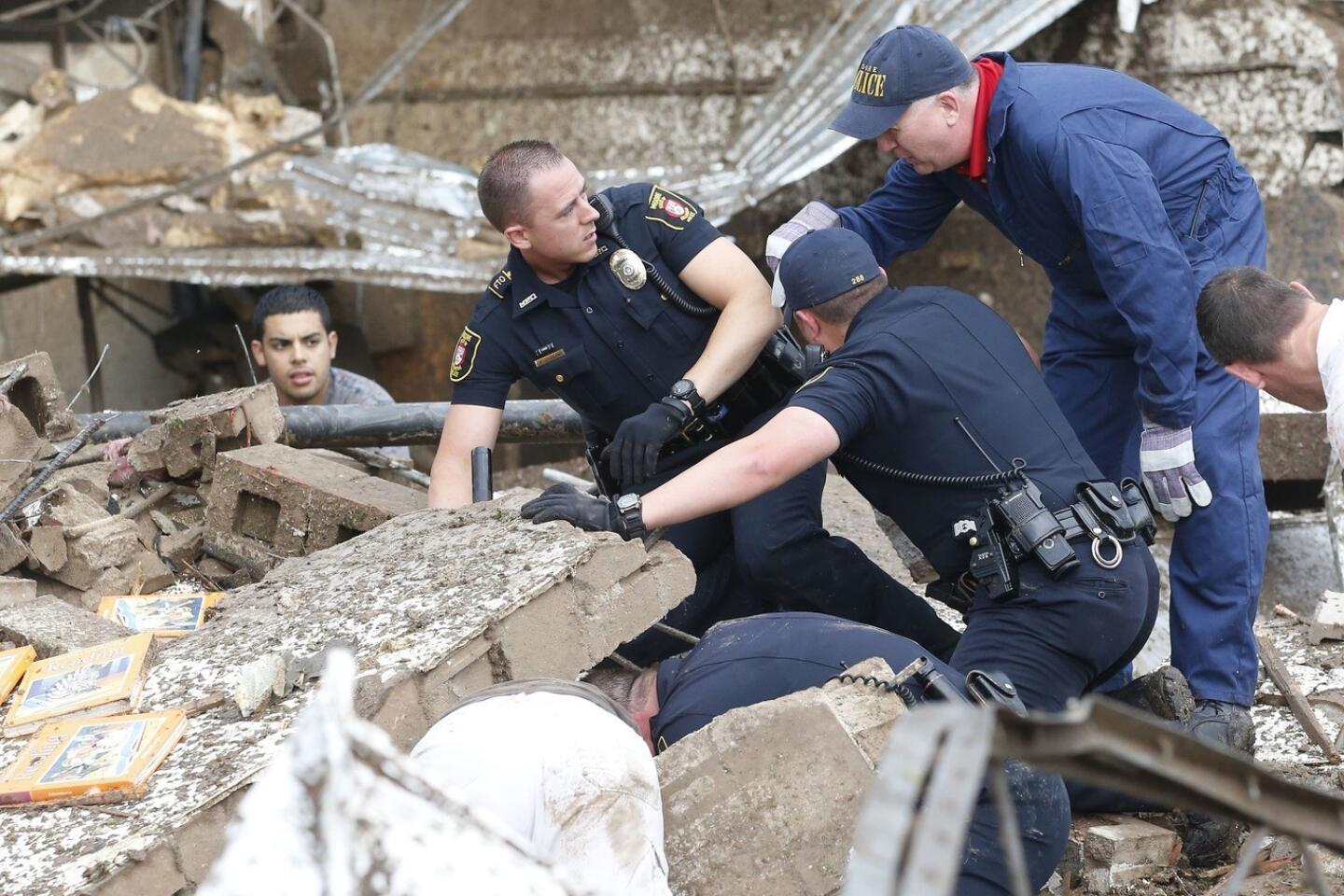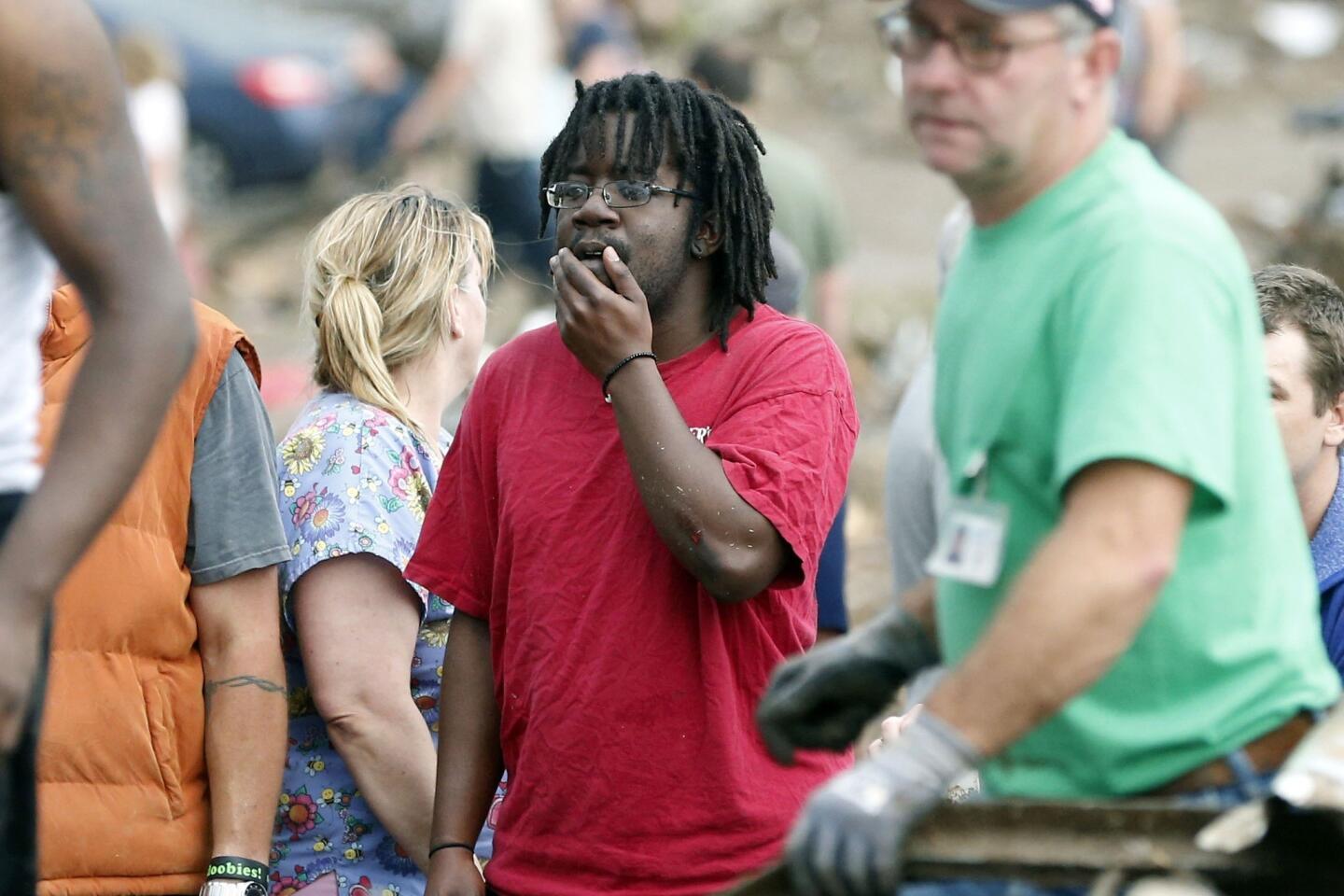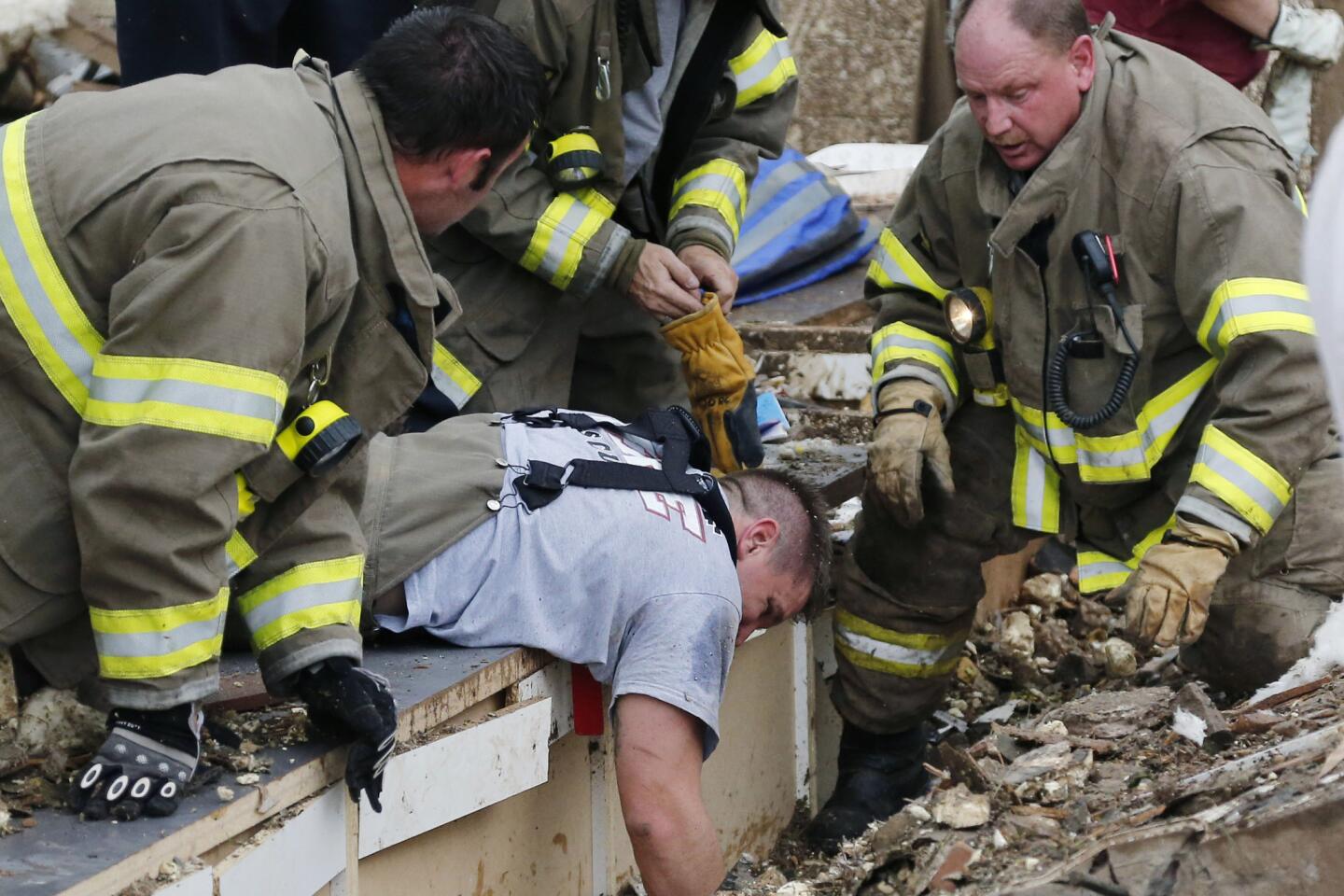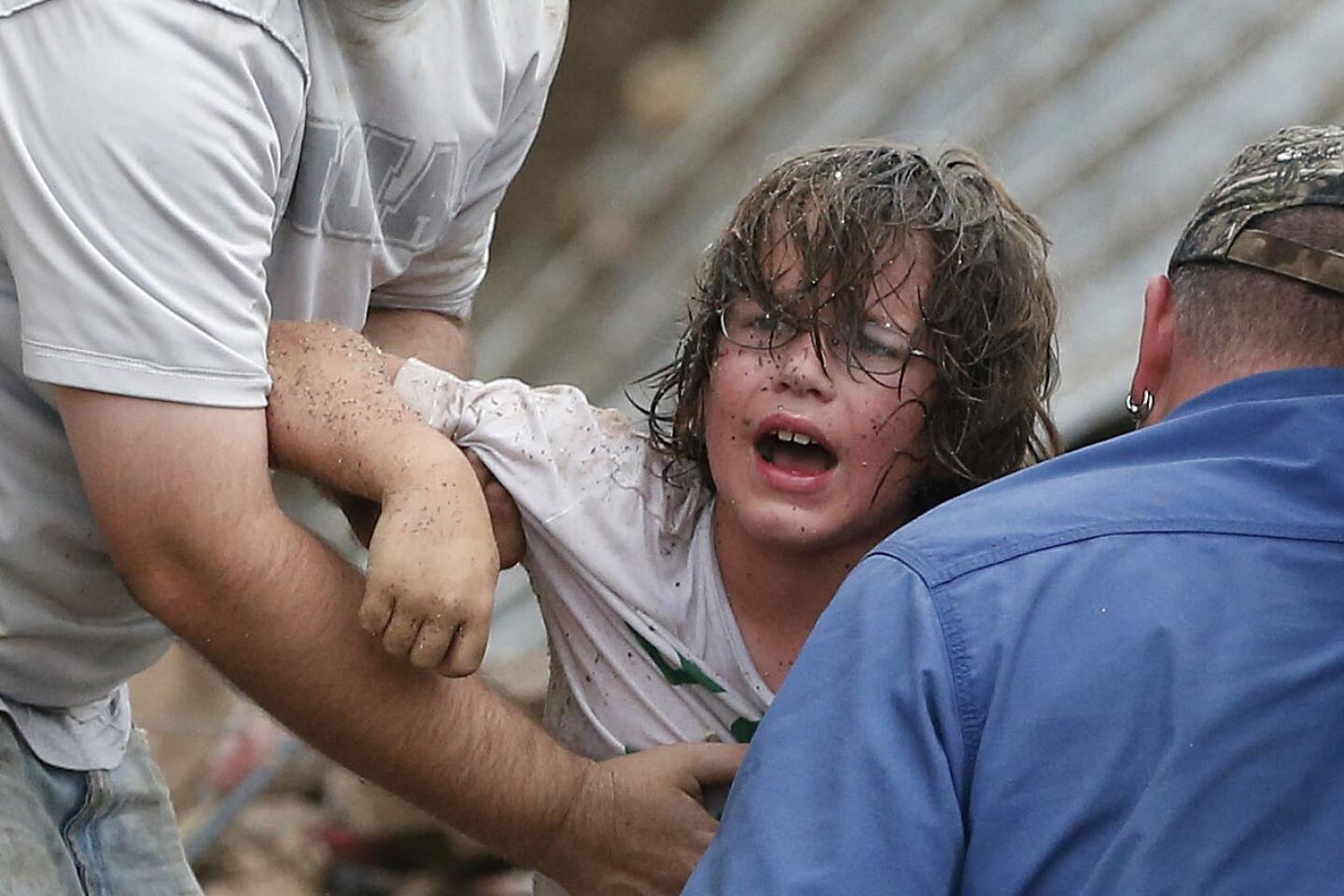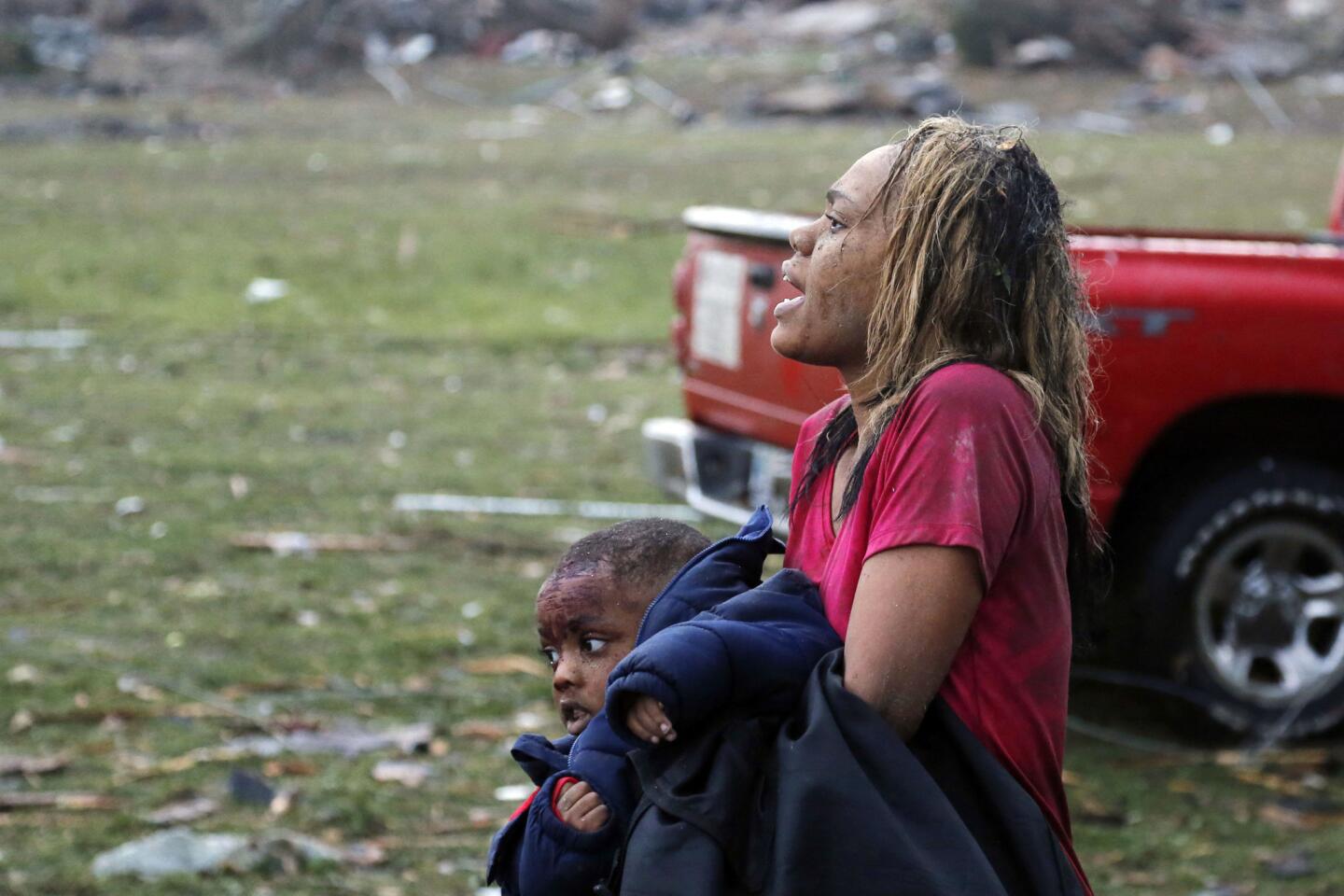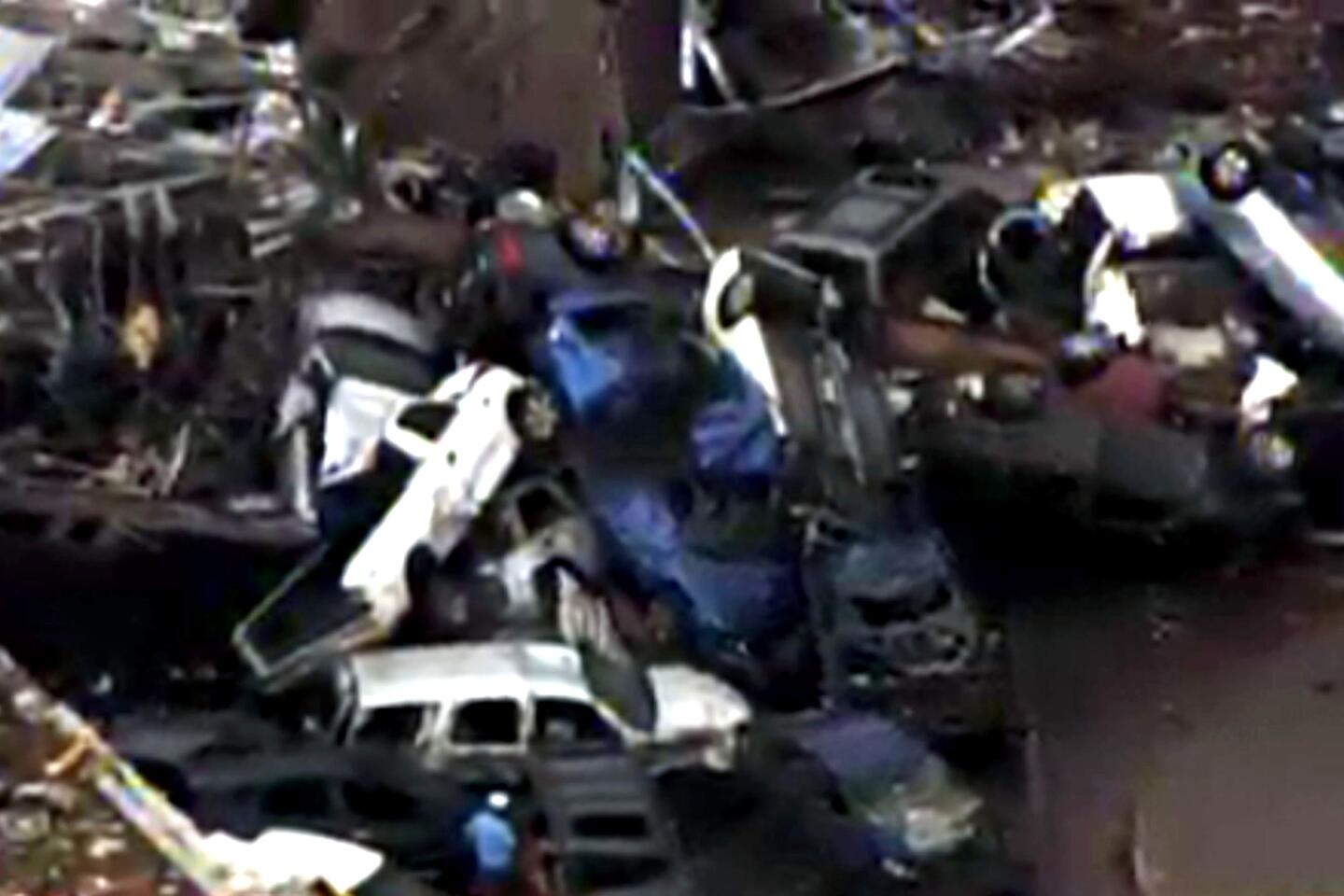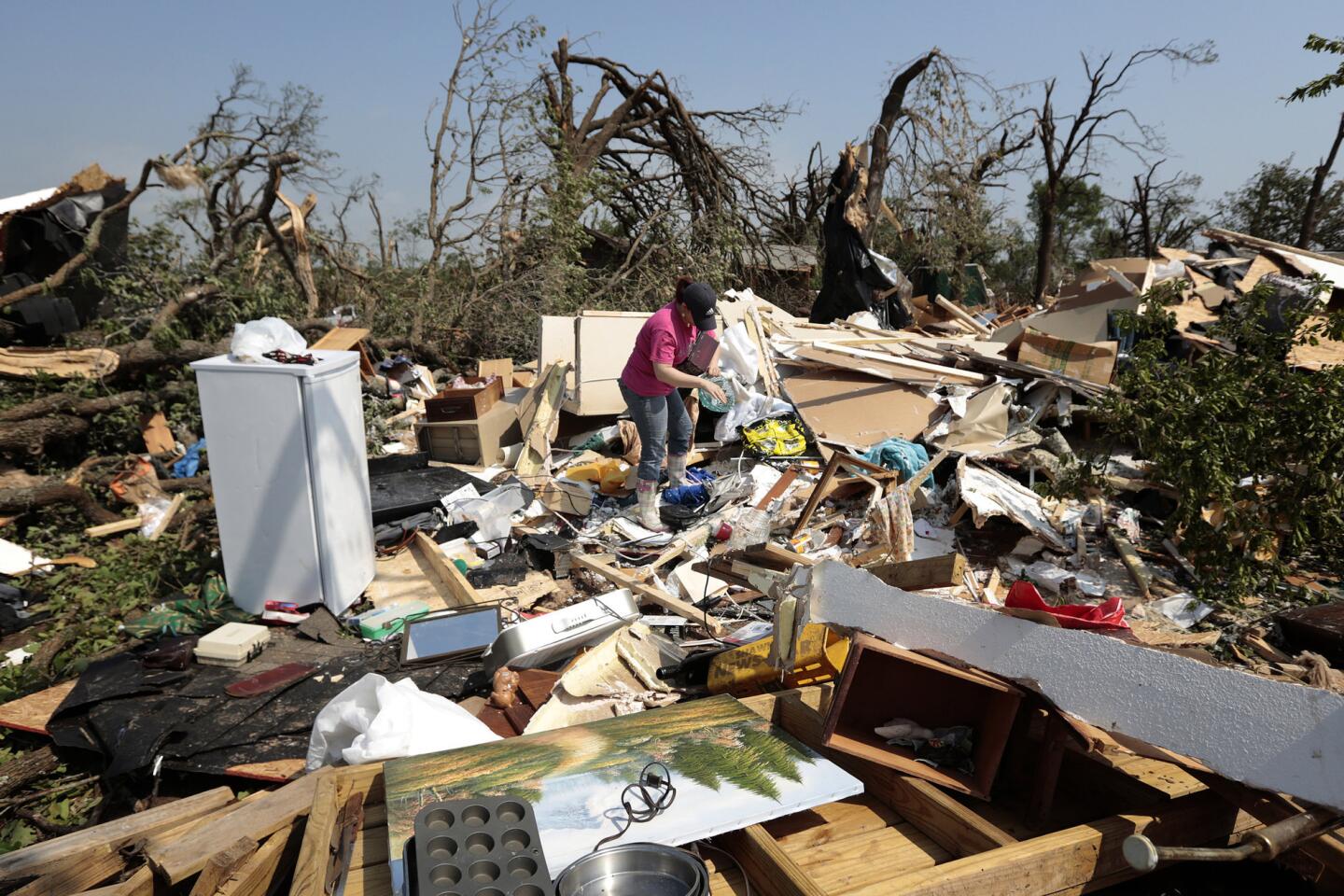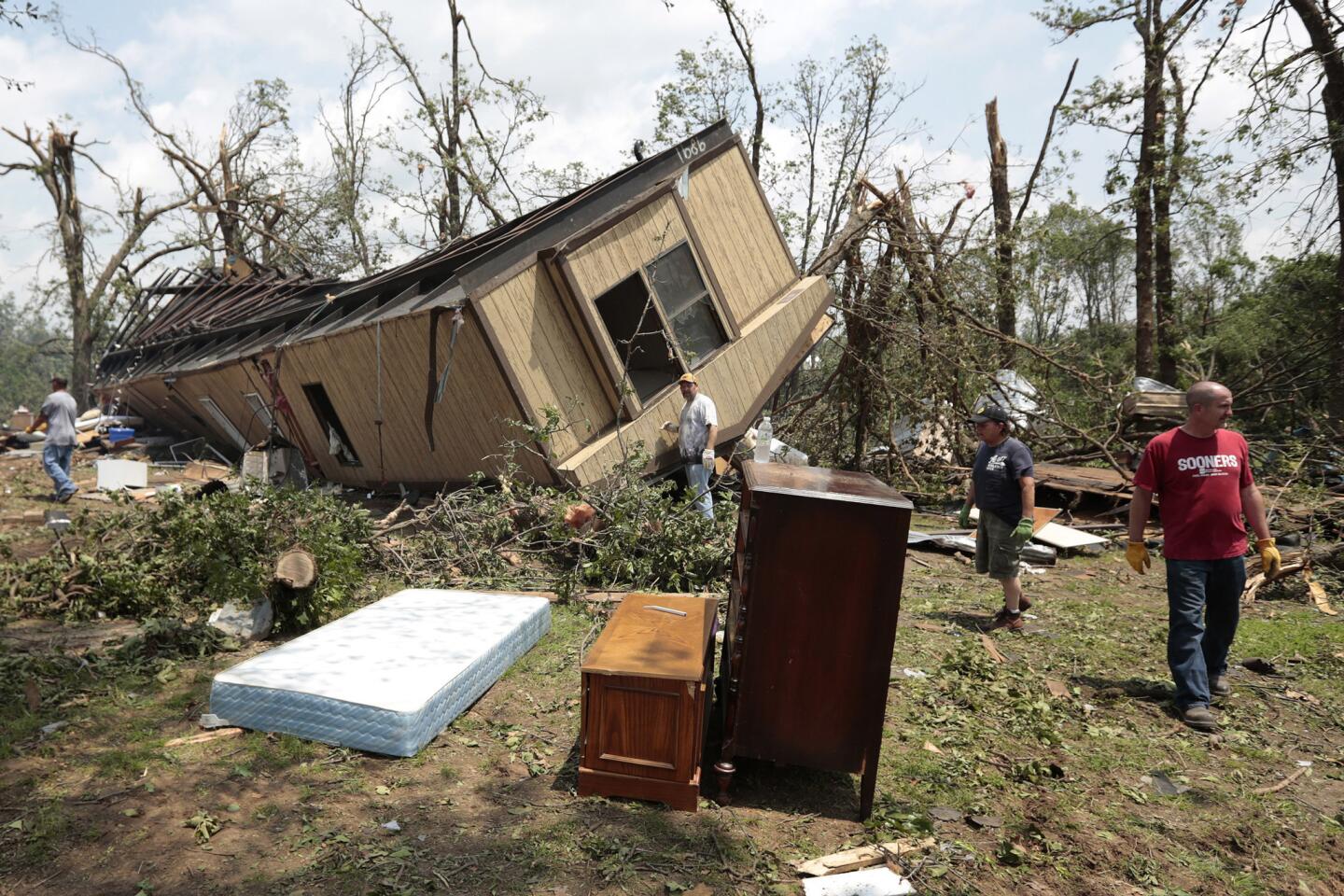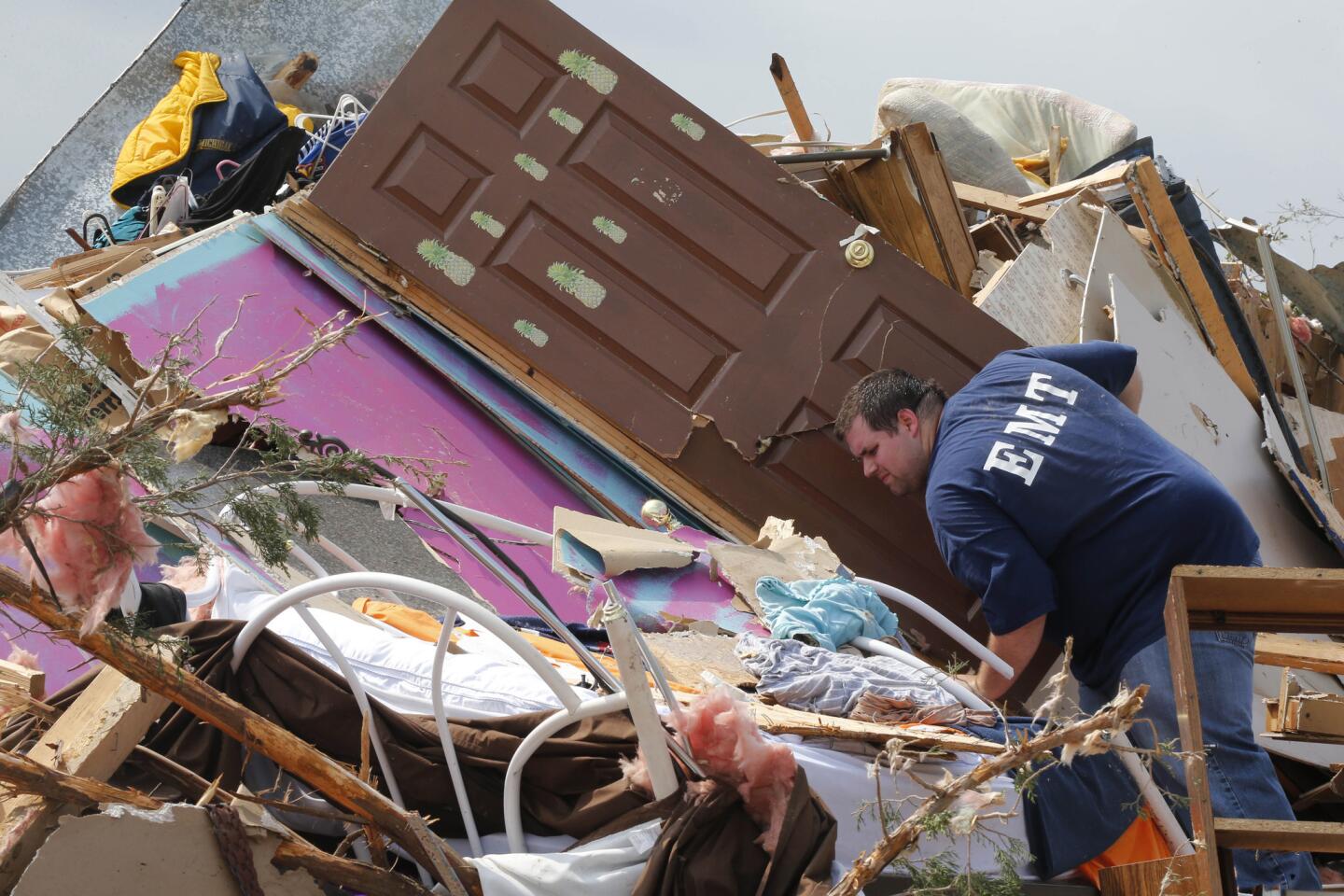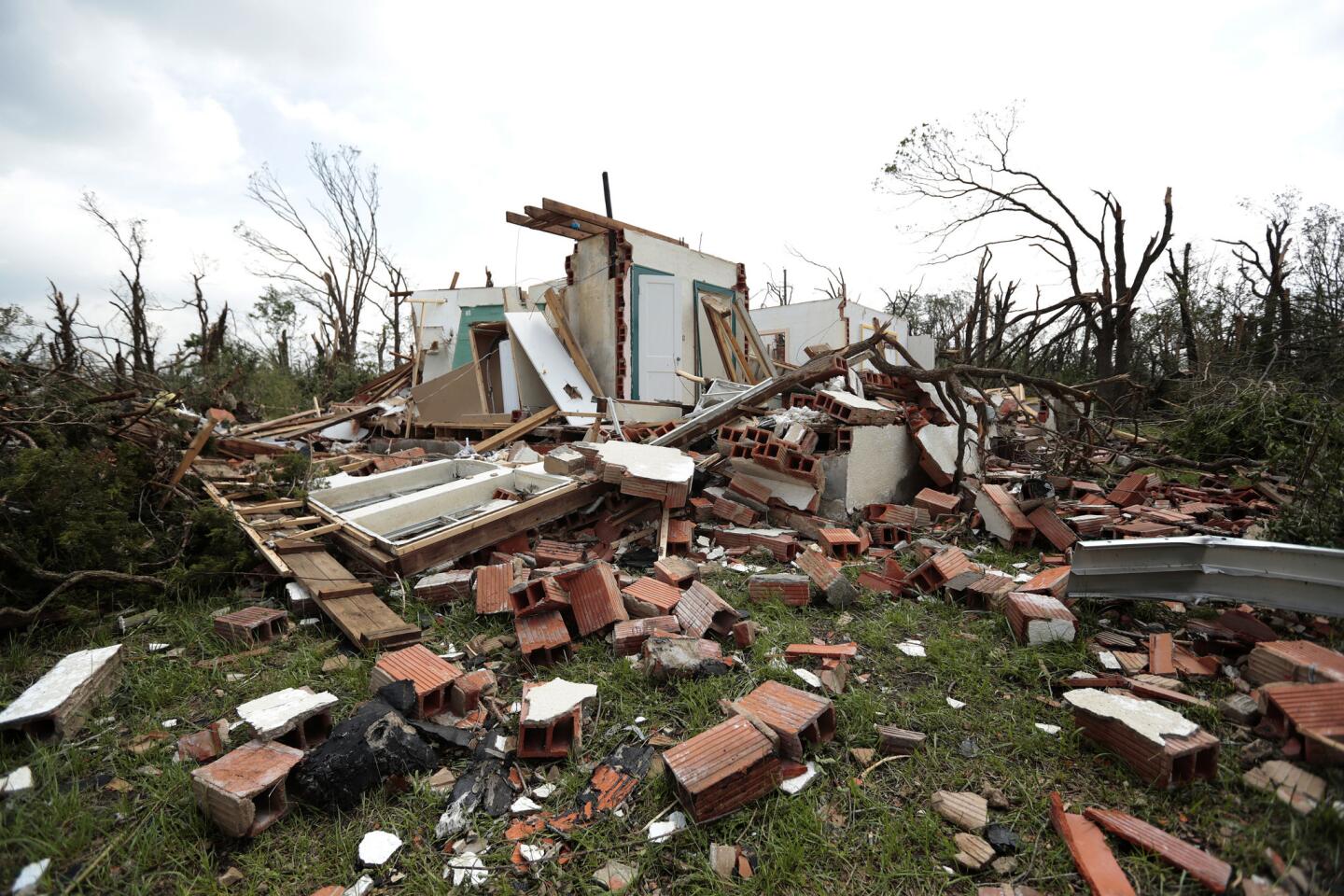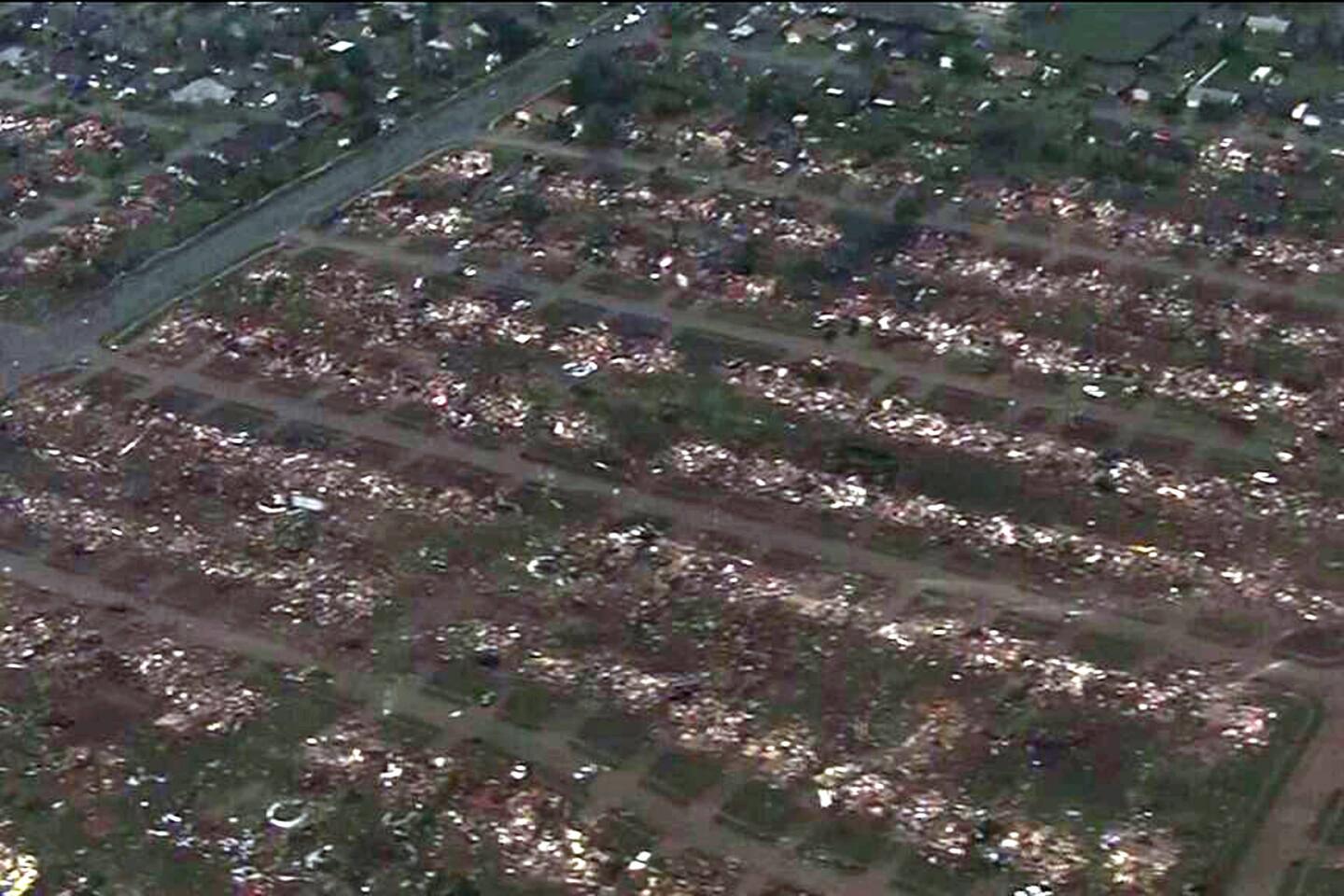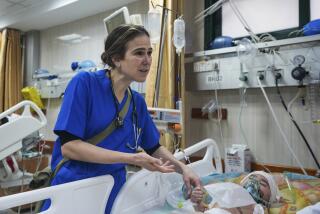Oklahoma tornado: Hospital ‘code black’ before flood of patients
The injured children came into the Children’s Hospital at the Oklahoma University Medical Center in Oklahoma City fast. So fast that the hospital set up a triage center in its own facility.
“Every once in a while, a trauma trickles into the emergency room at OU Children’s,” said Bob Letton, pediatric trauma medical director at the hospital.
But not Monday. In the wake of a powerful tornado that ripped through the area, he said, “a facility used to seeing one or two traumas a day all of a sudden had over 50.”
PHOTOS: Powerful tornado slams Oklahoma
Doctors and other staff almost immediately treated the “walking wounded” -- those with lacerations and other minor injuries -- so the emergency room could handle the more seriously injured, Letton said.
Ten children were admitted to the hospital Monday, he said. Two children had to go to the operating room and were intensive care Tuesday.
“Everybody is doing OK today,” Letton said Tuesday in a televised news conference.
The staffs at medical facilities around the region had braced for victims.
Roxie Albrecht, trauma medical director at the OU Medical Center, said the hospital went into “code black” when a tornado warning came and sirens began to wail. Staff members helped move patients from their rooms into the hallways and away from windows, she said.
“As soon as we heard the code black, we knew there was a problem,” she said.
The hospitals then went into code yellow, which meant their emergency rooms would soon be flooded with patients.
Albrecht said the injuries of adult patients ranged from minor — cuts and bruises, people wet and suffering from hypothermia — to “major, severe injuries.” The major injuries included open wounds, impalements and broken bones. There were also “degloving” injuries, in which skin is peeled from the tissue.
Chuck Spicer, chief executive of the OU Medical System, said 94 patients -- 51 children and 43 adults -- were seen at OU Medical facilities with injuries from storms Sunday as well as Monday’s tornado.
Monday’s tornado has been likened to a devastating series of storms that hit Oklahoma on May 3, 1999. Albrecht said Monday’s storm was different from the 1999 tornado because there were not as many head or traumatic brain injuries.
“I can’t explain why the mechanism was different in this case,” she said.
Letton recalled that he was finishing his medical fellowship at the hospital in 1999. Memories of that time had him bracing for Monday’s storm. “I had a vision of a whole lot more head injuries and very severe brain injuries. … In ‘99, that’s what it was. We had a stick in a head and we had a lot of kids who were down in a puddle and literally drowned in an inch of water,” he said.
With this storm, there were many penetration injuries to arms and legs, he said. The number of injuries was greater than in 1999, though they were generally not as severe as the earlier storm.
He also noted an improvement in medical services since 1999. Back then there was no children’s trauma center in the state, he said, and “we received kids far later…who should have seen us sooner. This time…it was seamless…considering I-35 was closed … we couldn’t get choppers anywhere” because of the storms.
On Tuesday, the flow of patients had ebbed but medical staffs remained vigilant. Kris Wallace, chief operating officer at OU Medical Center, said staff plans to stay on alert since there is “more weather on the way.”
ALSO:Oklahoma rescuers face grim day of rising death toll
Long Island community is shaken by Hofstra student’s death
Florist challenges demand to provide flowers for same-sex wedding
Twitter: @haileybranson
More to Read
Sign up for Essential California
The most important California stories and recommendations in your inbox every morning.
You may occasionally receive promotional content from the Los Angeles Times.
